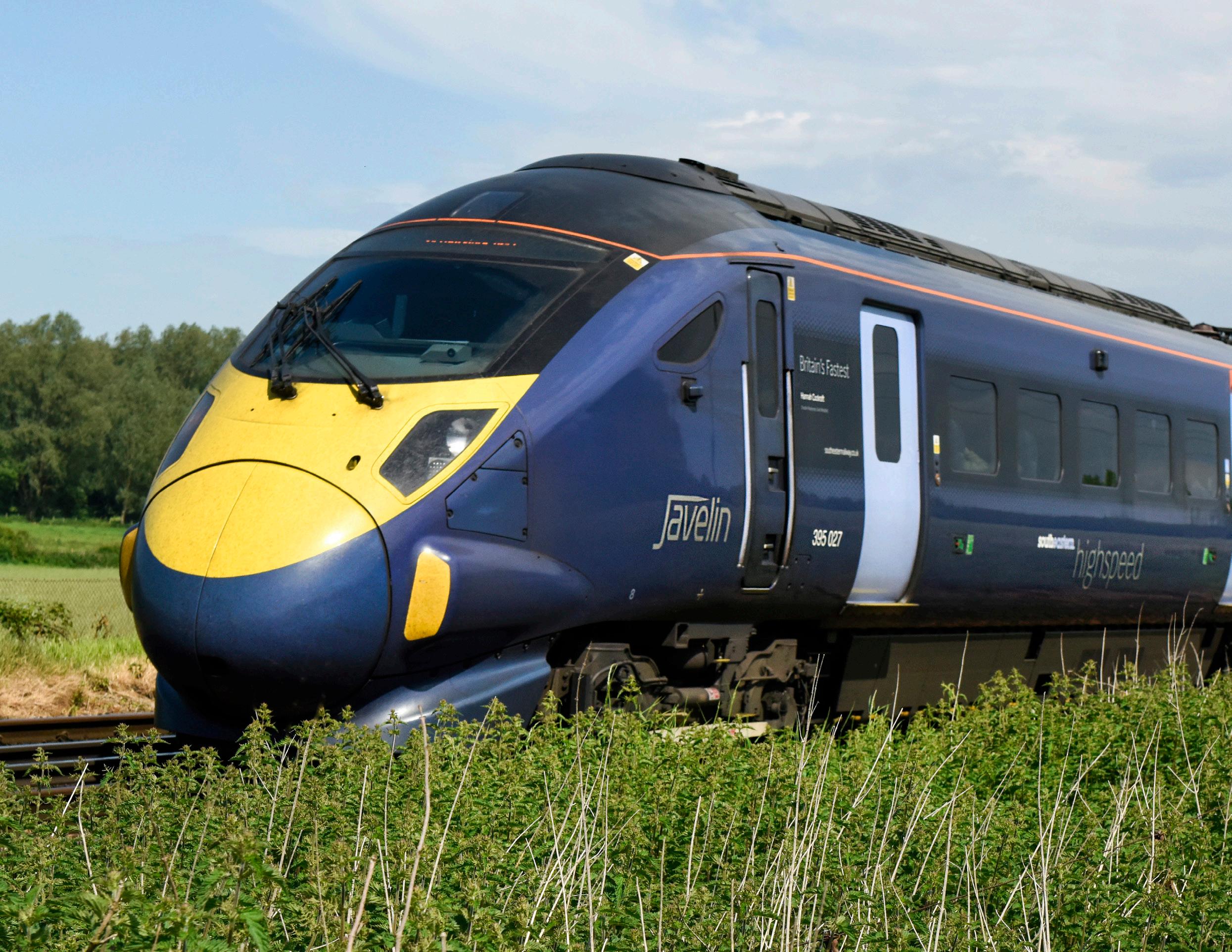
PURPOSE COALITION & SOUTHEASTERN
SOCIAL MOBILITY ACTION PLAN
1
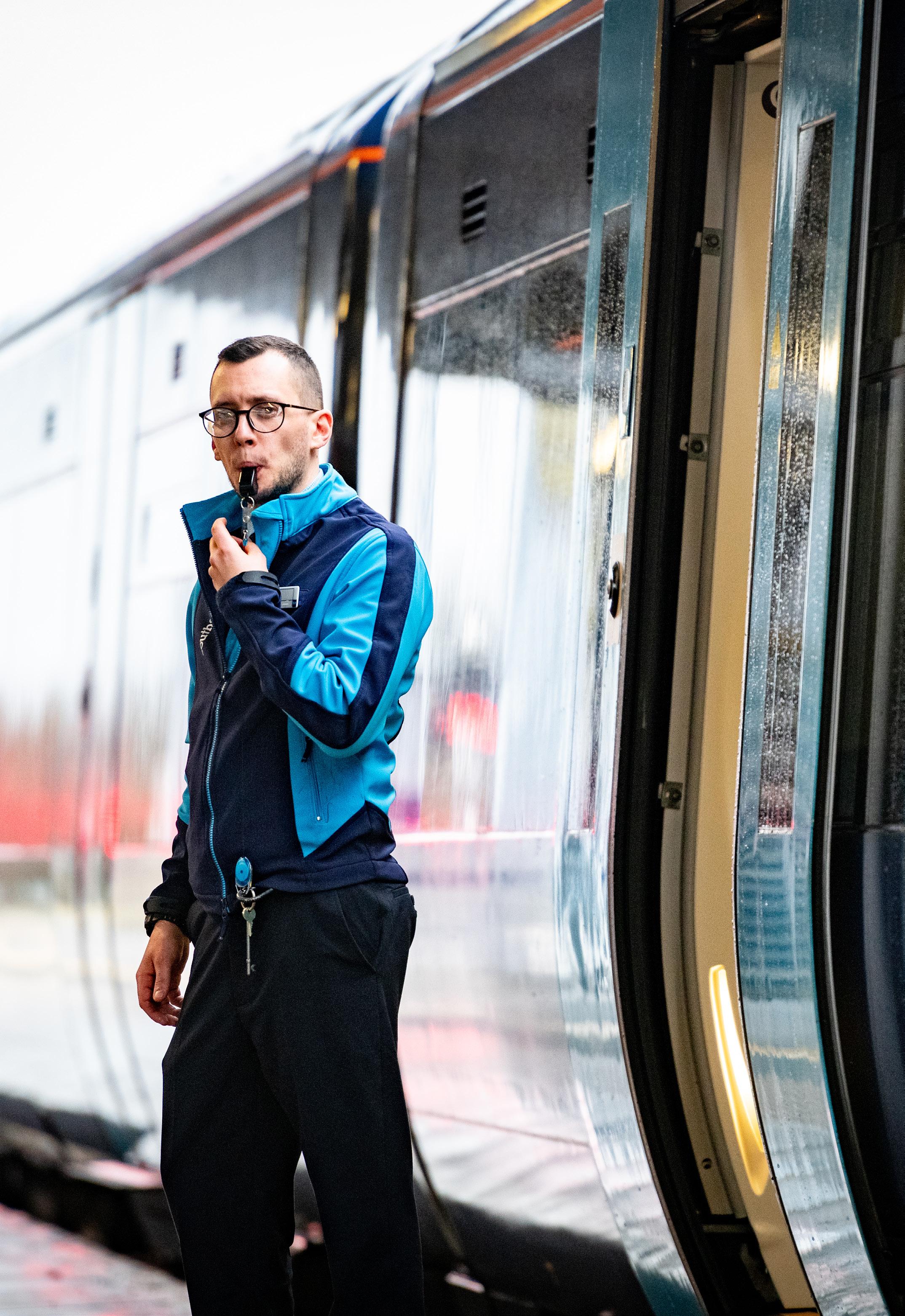
2 FOREWORD
Contents
1 1.1 Foreword: Rt Hon Justine Greening
1.2 Foreword: Steve White
2 An introduction to Southeastern and its role in boosting social mobility
3 Benchmarking Southeastern’s current activity against the Purpose Goals
5 Analysis
6 Recommendations
Appendices: Socio-economic Community Assessment
3

01: Foreword
1.1 Rt Hon Justine Greening, Chair of the Purpose Coalition and Former Secretary of State for Transport
Social mobility is a complex issue, with complex causes. Some social mobility coldspots are easily identifiable, areas which have traditionally seen underinvestment and a lack of opportunity over decades. Others tend to be hidden in plain sight, with particular streets of high deprivation running side by side with those of great affluence, including in Putney, a London constituency which I represented as its Member of Parliament for almost 15 years.
Famous for its history and heritage and for its picturesque countryside villages and seaside
towns, the South East is an area which many see as one of comparative wealth and privilege. Its close connection to London and the Continent means that it has always been a hugely popular tourist destination for both domestic and international visitors. But it is also home to areas of acute deprivation, with Thanet the 52nd worst performing area across the UK for social mobility, and most of its key indicators below the national average.
The most effective solutions to addressing the problem will be place-based. Many will be driven by businesses who know the communities they serve and who have developed constructive partnerships with other organisations in the local area that understand how best to support them. Southeastern Railway is just such a company, responsible for connecting people, businesses and communities in an area where there are a number of social mobility challenges.
4
As a Cabinet Minister, and particularly during my time as Secretary of State for Transport, I saw how vital that connectivity was for a Government’s plans for economic growth. The transport sectorand the railways in particular - are key to building a sustainable infrastructure that will support long-term change. We need to continue to modernise all our networks so that they can deliver a reliable and value-for-money service.
As the operator of one of our busiest networks, Southeastern Railway is in a prime position to drive long-term change in the area. This report demonstrates how it is delivering opportunity in the region it serves.
First and foremost is its commitment to run an efficient service that is responsive to the needs of its customers. Looking ahead, the Thanet Parkway development will be part of a crucial integrated transport hub that will not only facilitate vital rail connections to London and Kent destinations but will also offer a multifaceted transportation centre. The project stems from a place-based partnership between Kent County Council and Southeastern to enhance transportation connectivity in East Kent while also bolstering the local economy.
As a key player in the transport sector, Southeastern Railway is also playing a leading role in building a Rail is one of the most environmentally friendly ways to travel, and a greener alternative for freight transport, and Southeastern has set ambitious targets for its environmental performance and is developing a comprehensive plan to reach net zero.
genuine pipeline of talent, ensuring that its employees have the hi-tech digital skills that the twenty-first century needs. That starts with a range of specialised apprenticeship programmes, including engineering, and work experience placements and continues with its train driver pathway. In a traditionally male-dominated industry, it recognises that the needs and priorities of the people who work in it have changed.
It is working hard to attract and retain a higher proportion of women in its workforce, including in management, through better progression pathways and an improved health and wellbeing offering. Crucially, it is willing to monitor and evaluate its progress to ensure better outcomes, and there is undoubted progress.
Transport also has a vital role to play in the journey to net zero. Rail is one of the most environmentally friendly ways to travel, and a greener alternative for freight transport, and Southeastern has set ambitious targets for its environmental performance and is developing a comprehensive plan to reach net zero.
I was proud to join Southeastern’s Managing Director, Steve White, recently to unveil a train named in honour of Verena Winifred Holmes. Born in Kent, she became President of the Women in Engineering Society. She was a strong supporter of women in engineering and was committed to developing fellow female engineers with her own firm of female engineers. She blazed a trail for women in the workplace. The ambition and vision that Southeastern commemorated sits well with their purpose-led approach to being a company which is committed to making a difference.
This report showcases the great work that Southeastern is already doing to deliver equality of opportunity to an area which will greatly reap the benefits. It also suggests a number of recommendations where it can make an even greater impact and I hope that it will continue to shape the future of the South East and the transport sector.
5 FOREWORD
Foreword
1.2 Steve White, Managing Director, Southeastern
Railway
We are fiercely committed to supporting the cities, towns, and communities we serve throughout South East London, Kent, and East Sussex. We know railways are not just a means of travel, they can support economic investment, unlock growth and prosperity, and provide access to employment, healthcare, education, and training opportunities for millions of people.
That is why we are delighted to be the first UK train operator to publish a Social Mobility Action Plan, that clearly sets out our work to date as well as our future ambition to do even more.
While some areas on our network prosper, many others face challenges that improved social mobility would help to counteract. As a public, not-for-profit train company, our focus since day one has been attracting more customers back to our railway. We strive to build a better, more reliable, and sustainable railway, all while being responsible stewards of taxpayer funds.
A truly sustainable railway isn’t just about the environment. It’s about connecting people and places and unlocking economic potential. We see ourselves being a catalyst for growth, bringing opportunities to underserved communities. Beyond economics, we want to play a tangible role in improving social mobility, ensuring our services truly benefit everyone.

To deliver on these ambitions, we both buy goods and services locally and hire locally. Over the course of the next 12 months, we will deliver our biggest ever recruitment drive and are looking to hire over 600 new colleagues across our business. As part of this, we’re committed to onboarding over 400 apprentices, with a specific focus on diversity beyond gender, ethnicity, and disability. We are actively seeking talent from lower socio-economic backgrounds to enrich our workforce and better reflect the communities we serve.
6 FOREWORD
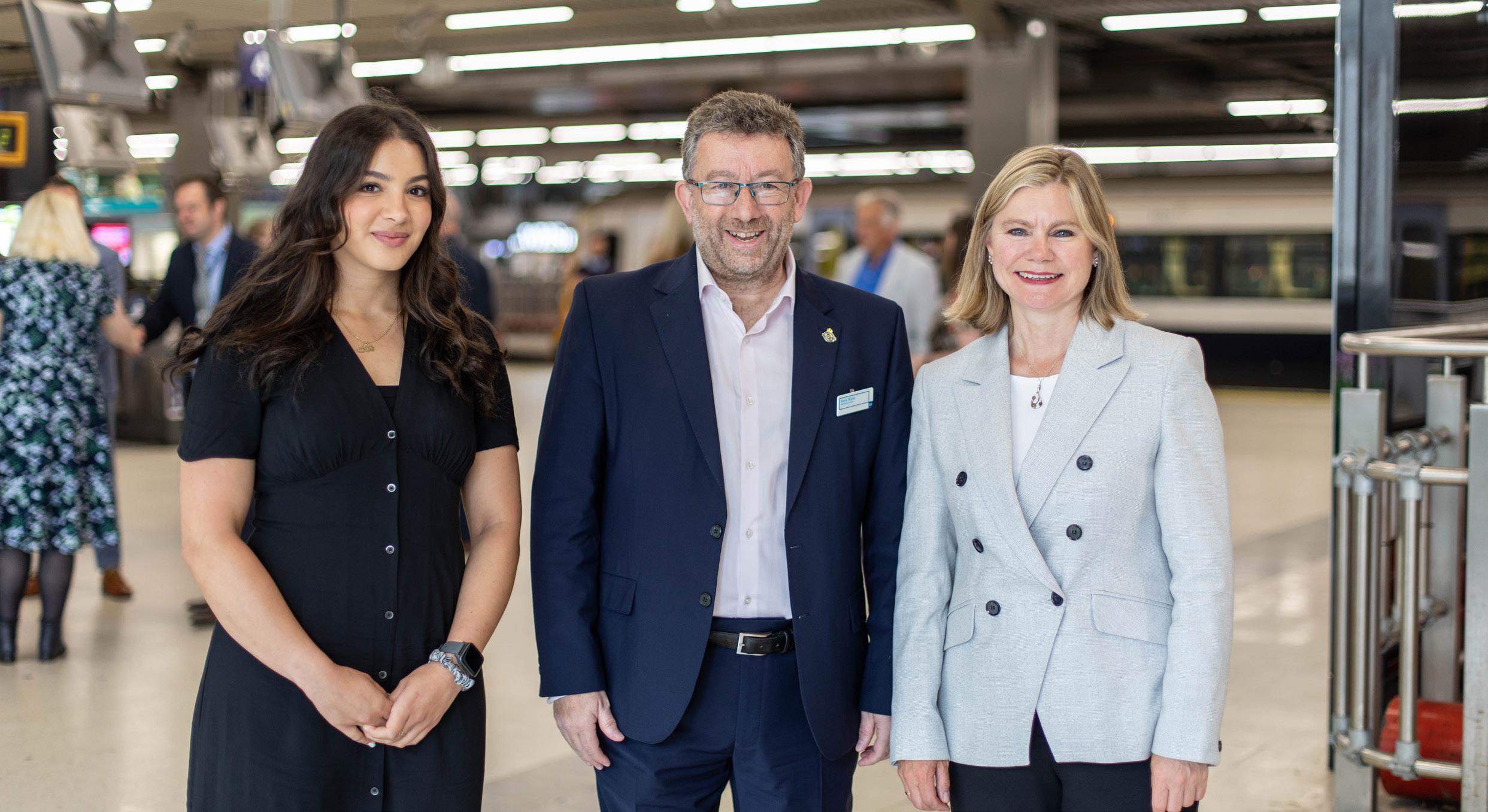
Through these jobs and apprenticeships, we will be helping new entrants into work to start them off on the right track or helping existing workers to learn and develop new skills and seek new opportunities. We want our colleagues to thrive and be proud to serve the South East.
I’m thrilled to collaborate with the Purpose Coalition and ensure our plans bring greater value to all communities, particularly those facing socioeconomic barriers. During my lifelong career in the railway industry I have witnessed the transformative power of rail for both individuals and communities. At Southeastern, we prioritise both our people and the communities we serve. We are an organisation oozing with humanity. Recently witnessing eight young adults from disadvantaged backgrounds gain their first jobs through our latest Prince’s Trust ‘Get into Railways’ program reaffirmed the life changing impact we can have benefitting individuals, our oganisation, and the wider community.
Southeastern actively seeks partnerships that create positive impacts within and beyond the railway industry.
We encourage others to join initiatives we have founded like the Railway Mental Health Charter or the Rail to Refuge Scheme. We have developed a Sustainability Strategy aligned with the RSSB’s Sustainable Rail Blueprint and are proud to be the first train operating company to host a climate resilience conference, bringing together over 140 stakeholders to tackle this critical challenge.
Our collaborations extend beyond industry lines. We work with organisations in the community to provide a positive destination for those leaving schools (post 16+), focus on health and wellbeing, improve the infrastructure in our communities and improve access to travel through more value for money fares. By partnering strategically, Southeastern makes a positive difference for our customers, our people, and the communities we serve.
We are actively seeking talent from lower socio-economic backgrounds to enrich our workforce and better reflect the communities we serve.
Joining forces with the Purpose Coalition enables us to upgrade our purpose from delivering mobility to enabling social mobility. Collaborating with partners who share our values, we are excited by the opportunities ahead. As a testament to our dedication to the Southeastern region, our Social Value Report showcases the scale of our investments and the opportunities we create for our community and for those who live and work here, too. I would like to thank Justine and everyone at the Purpose Coalition for their help and support in bringing us to this stage and I look forward to doing much, much more in the future because this really matters.
7 FOREWORD
02: An introduction to Southeastern Railway and its role in boosting social mobility
2.1 Background
Southeastern Railway plays a critical role in the UK's transportation infrastructure, linking key urban centres in Kent and East Sussex with London, serving as a connective line for commuters and tourists. Its extensive network spans a diverse region, encompassing thriving cities, underserved suburbs and scenic rural landscapes.
Renowned for its well-coordinated services and punctual, dependable trains, Southeastern Railway has established a strong business foundation, fostering a strong passenger relationship through its unwavering commitment to operational efficiency.
Employing a workforce of up to 4,500 people, Southeastern facilitates a staggering 400,000 passenger journeys and operates an average of 1,700 train services daily, servicing 180 stations with a fleet of 399 operational trains.
Notably, its high-speed trains boast speeds of up to 140 mph, pioneering the first domestic high-speed service in the UK.
The organisation offers a wide array of skilled job opportunities, ranging from train drivers, station staff, and train engineers to various office-based roles, supporting a dynamic and inclusive work environment.
Emphasising the value of its employees, Southeastern provides a comprehensive benefits package, including competitive salaries, participation in a contributory Final Salary Pension Scheme, generous holiday allowances, extensive training, and promising career development prospects, along with the opportunity to acquire recognised qualifications. Employees also have access to the Extra Mile platform that allows peer-to-peer recognition and access to benefits such as a cycle to work scheme, high street vouchers at a discount and a wellbeing centre.
Notably, its highspeed trains boast speeds of up to 140 mph, pioneering the first domestic highspeed service in the UK.
8 INTRODUCTION
2.2 Values
Southeastern Railway is deeply committed to the wellbeing of its employees, passengers and the communities it serves. It strives to build an inclusive and responsible culture where everyone has the opportunity to thrive - underpinned by a commitment to creating a positive impact that extends beyond the provision of railway services.
At the heart of Southeastern’s values is the belief in individuals who demonstrate integrity and empathy in their daily interactions. The company values these qualities above just academic qualifications or connections - which can be often based on someone’s background and life circumstancescreating a workplace that encourages a range of perspectives and talents to flourish.
In its dedication to boosting social mobility, Southeastern actively engages with local communities, aiming to deliver impact by breaking down barriers across strategic communities. By working closely with these areas, Southeastern is striving to empower individuals, regardless of their backgrounds, to reach their full potential.

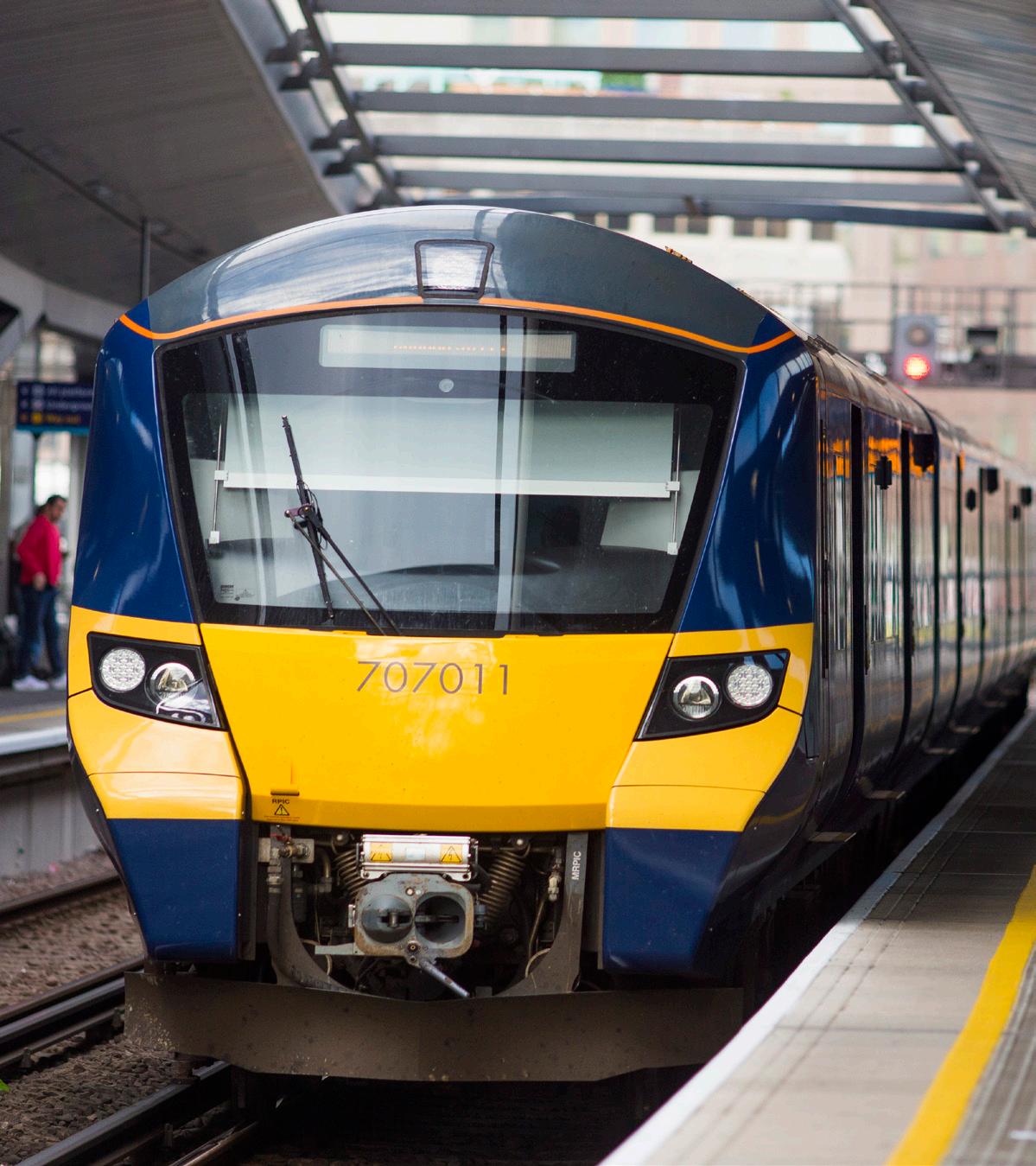
Despite its already sector-leading approach to social mobility, this Action Plan stands as a commitment by Southeastern to go even further. Throughout this report, the organisation’s current best practice - benchmarked against the most relevant Purpose Goals - will be assessed and analysed. Through this process, key areas of opportunity where Southeastern could go even further will be presented.
Through strategic socioeconomic analysis of Southeastern’s network, the areas where this impact could be targeted most effectively - delivering social impact to those who need it most - will be identified. This will form the basis of recommendations as a plan of action for the organisation to up-scale its impact and its approach to operating as a vehicle of social mobility and a leader across the industry on breaking down barriers to opportunity.
9
2.3 The Journey to the Purpose Goals: Tackling the UK’s Biggest Challenges in Partnership with the Purpose Coalition
Southeastern Railway and the Purpose Coalition are working together to tackle the UK’s biggest challenges facing customers, colleagues, and communities. From helping people with the cost of living crisis in the short term, to securing social mobility for all.
The Purpose Coalition measures organisations against what they are doing for their customers, colleagues and communities through the Purpose Goals, with tools such as the Cost of Living Taskforce.
The cost of living is the biggest issue facing the United Kingdom today, and will require action from all sections of our society - whether politics, business, or all of us as individuals helping out our friends, neighbours and local communities where we can. Whilst the cost-of-living crisis will affect the poorest in society the most, with those households facing a higher level of inflation, one of the biggest challenges for the government is that the rising cost of living will affect almost everyone.
In 2015, as Secretary of State for International Development, Rt Hon Justine Greening led the UK delegation to the United Nations (UN). Along with 184 international partners, she helped to establish the UN’s Sustainable Development Goals (SDGs).
In 2017, the SDGs were made more ‘actionable’ by a UN resolution adopted by the General Assembly which identified specific targets for each goal, along with indicators used to measure progress towards each target.
These 17 interlinked, global goals were designed to be ‘a blueprint to achieve a better and more sustainable future for all’. The SDGs emphasised the interdependent environment, social and economic aspects of development by centralising the role of sustainability.
As Secretary of State, Justine recognised how useful a common set of accessible but ambitious objectives could be in galvanising action to effect change.
Since then the COVID-19 pandemic and the costof-living crisis has only exacerbated many of the problems relating to social inequality in the UK.
The pathway towards recovery is a chance for the United Kingdom to address these issues and level up but that requires updated and specific goals in order to outline, inspire and measure progress. The most committed signatories of the Social Mobility Pledge, the Purpose Coalition, and the Cost of Living Taskforce aim to improve social mobility in the UK and have responded to this challenge with the launch of the Purpose Goals in February 2021 and the Cost of Living Taskforce in August 2022.
The Purpose Goals build on the foundations laid by the UN’s SDGs by outlining 14 clear goals, and draw on expertise provided by academia and businesses which has been applied to the unique challenges facing the UK currently in what has potential to be a profound levelling down moment for the country.
As Secretary of State, Justine recognised how useful a common set of accessible but ambitious objectives could be in galvanising action to effect change.
10 INTRODUCTION
The Purpose Goals focus on key life stages and highlight the main issues that need to be resolved in order to create a level playing field for all. The Goals are intended to guide how the urgent ambition to level up the UK can actually be achieved. The impact of the work carried out to do this can, and should, be measurable.
Sub-goals with quantifiable targets and measurements against which progress can be charted within the 14 goals are being developed by the Purpose Coalition. This will create a more transparent and mensurable framework with which to monitor and subsequently address problems of social mobility and inequality. The Purpose Goals are designed to look at the outcomes of CSR strategies and measures that organisations operate. Many organisations are doing outstanding work and making important contributions to society but are still measuring this via inputs.
Crucially, these Goals are a shared framework. Justine and the wider Purpose Coalition, of which Southeastern Railway is a key member, believe that with a common understanding and objectives, there can be action that drives change on the ground. Distinct entities, including universities, businesses, policy-makers, and public sector bodies can work together, with the shared Goals being a uniting and motivating foundation for progress. As the problems which cause social inequality in the UK are interlinked, it seems that the response to these problems must also be collaborative.
The Purpose Coalition has encouraged businesses and universities to share their own best practice with other organisations so they are not only demonstrating their own commitment but creating a shift towards purpose-led organisations. The Goals can encourage an extension of this co-operative exchange of information which can be used to address the cost-of-living crisis, and later equalise opportunity across the UK.
11 INTRODUCTION Positive destinations Post 16+ 3 Successful school years 2 Strong foundations in Early Years 1 Right advice and experiences 4 Fair career progression 6 Open recruitment 5 Good health and well-being 8 Widening access to savings & credit 7 Closing the digital divide 10 Extending enterprise 9 Building homes & sustainable communities 12 Infrastructure for opportunity 11 Achieve equality, through diversity & inclusion 14 Harness the energy transition 13
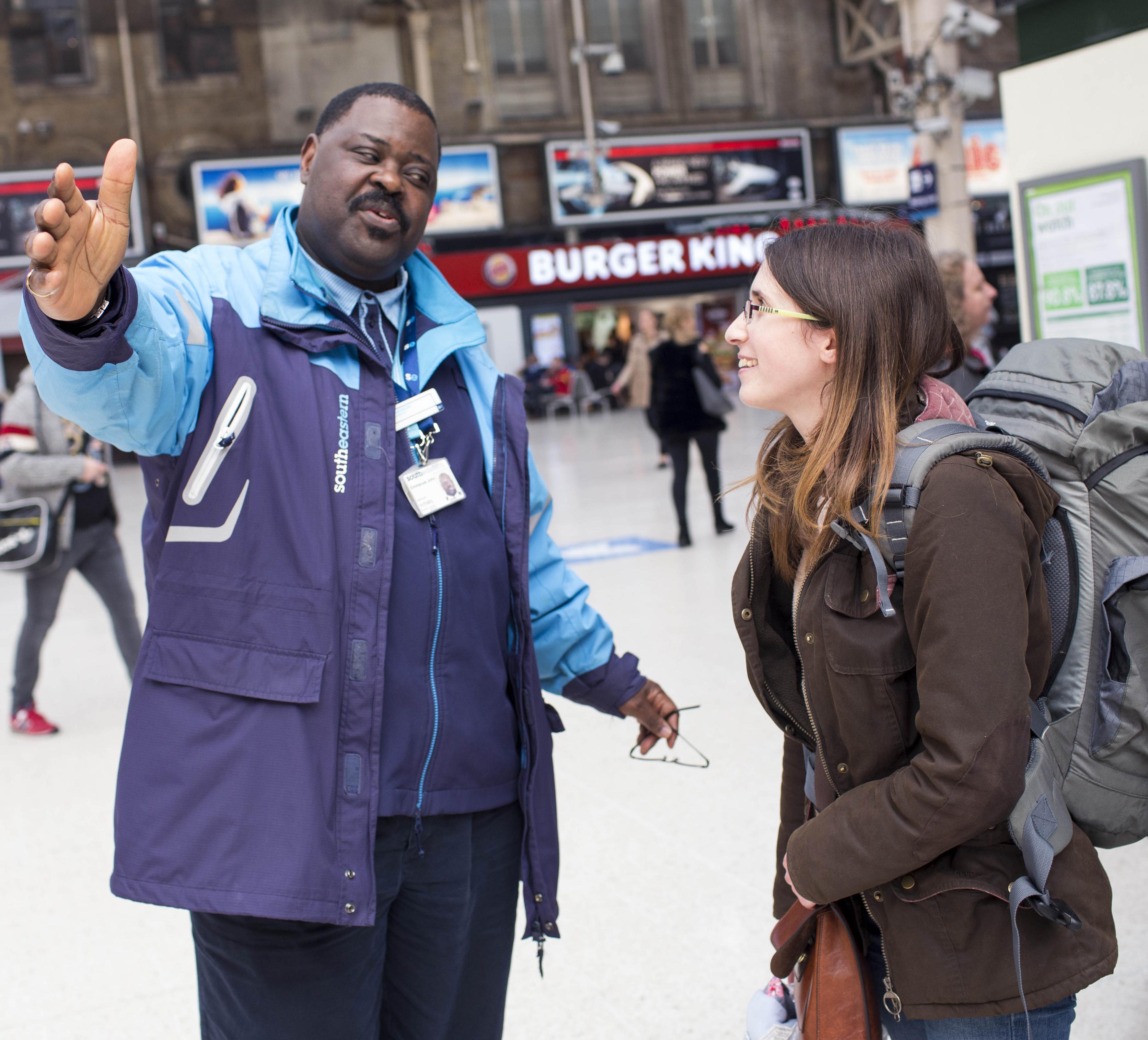
03: Benchmarking Southeastern’s current activity against the Purpose Goals
In this section, Southeastern’s current activity will be benchmarked against a number of the most relevant Purpose Goals, identifying areas of best practice and areas where the organisation can scale-up its impact even further.
12
BENCHMARKING
Positive destinations Post 16+
3.1 Goal 3. Positive Destinations Post 16+
Every young person and adult deserves the choice between a high quality route into education, employment or training.
We’re seeing more young people become the first person from their family to go to university. It’s vital that this path isn’t blocked for those with the potential and who want that choice. Equally important is a strong choice for a non-academic route, latterly through apprenticeships and the growing availability of T-Levels.
Southeastern has a number of professional, officebased roles as well as its technical skills-based on-site opportunities. It meets this wide range of roles with an equally diverse number of routes into the organisation - supported by an inclusive and proactive approach to outreach and recruitment.
3.1.1 Apprenticeship Schemes
Southeastern is boosting social mobility through various initiatives, including its Engineering Apprenticeship Scheme, alongside a range of specialised apprenticeship programmes tailored to the rail industry. These programmes present promising avenues for individuals to attain nationally recognised qualifications while earning during their learning pathway.
Approximately six engineering apprentices are recruited each year and are enrolled onto a Level 3 Rail Engineering Technician programme. Upon completion, apprentices become qualified engineers. Southeastern conducts strategic visits to local schools, colleges and universities to offer details of its sector-leading Engineering Apprenticeship.
The wide range of apprenticeship programmes are accessible and available regardless of education and employment history. The programmes go far beyond the types of roles traditionally associated with a rail accreditation - with a broad scope from a Level 2 Passenger Transport Operative role to a Level 7 Accountancy. The diverse nature of the opportunities available at Southeastern - both office-based and onsite technical roles - is reflected across its comprehensive apprenticeship offering.
Since 2018 Southeastern has graduated over 500 colleagues through its apprenticeship programmes. The organisation also currently has another 400 candidates undergoing an apprenticeship. These opportunities - cruciallyare available to internal colleagues as well as external candidates. There are currently 60 employees on management development apprenticeships with a further 60 due to commence this year. This is vital in ensuring people do not just get into the organisation, but are supported in being truly socially mobile and getting on.
Since 2018 Southeastern has graduated over 500 colleagues through its apprenticeship programmes. The organisation also currently has another 400 candidates undergoing an apprenticeship.
13 BENCHMARKING
3
3.1.2 Other Routes into the Organisation
A wide range of strategic pathways into an organisation is the cornerstone of social mobility. The organisation undertakes an extensive agenda of collaborations with local schools, colleges and universities, including Canterbury College and the University of Kent. This helps to ensure the pathways into Southeastern are open and available to young people across Kent and the South East.
Southeastern is also working on its Work Experience programme. It is keen to offer Kent residents and young people short but critical experiences of the industry.
Southeastern Railway offers a number of work experience opportunities as well as a comprehensive graduate scheme.
The work experience programmes, currently being upscaled by Southeastern, provide students and young professionals with critical insights into the railway industry and a chance to develop valuable skills. As part of this, Southeastern has just commenced partnerships with East Kent College, Gravesend Grammar School, Sir Joseph Williamson’s Mathematical School and North Kent College. In addition, Southeastern has also partnered with Diverse Care, a fostering organisation.
Its graduate schemes provide recent graduates with structured training and development opportunities, fostering the next generation of young talent in the railway sector.
Southeastern Railway also works closely with the Prince’s Trust. A number of the Prince’s Trust candidates have gone on to have full time careers with the organisation.
Case Study - Victoria Raggio
Victoria's journey with Southeastern began in September 2021, joining the organisation’s first graduate scheme cohort.
In her first year, Victoria began her placement in On-board and Station Manager placements, gaining vital leadership and management experience from day one at Southeastern. Her passion for sustainability led her to actively collaborate with the Sustainability Team, taking on progressively more significant projects under the mentorship of the Head of Sustainability.
Recognising her potential, she was offered a full-time role within the Environment Team in June 2023 as Environmental Specialist. Victoria was thrilled with the progression opportunity and the transition from a graduate to a fulltime role in a field within rail she has particular interest in.
Her progression exemplifies the success of Southeastern's graduate scheme - which has now expanded to include five participantsas well as the wide range of roles available through both horizontal and vertical development and progression.
Of her experience so far with Southeastern Railway, Victoria said: “I am extremely grateful for the support I received from the Environment Team throughout my time on the graduate scheme. I was allowed to shape my experiences within Southeastern towards my desired career.”
14 BENCHMARKING
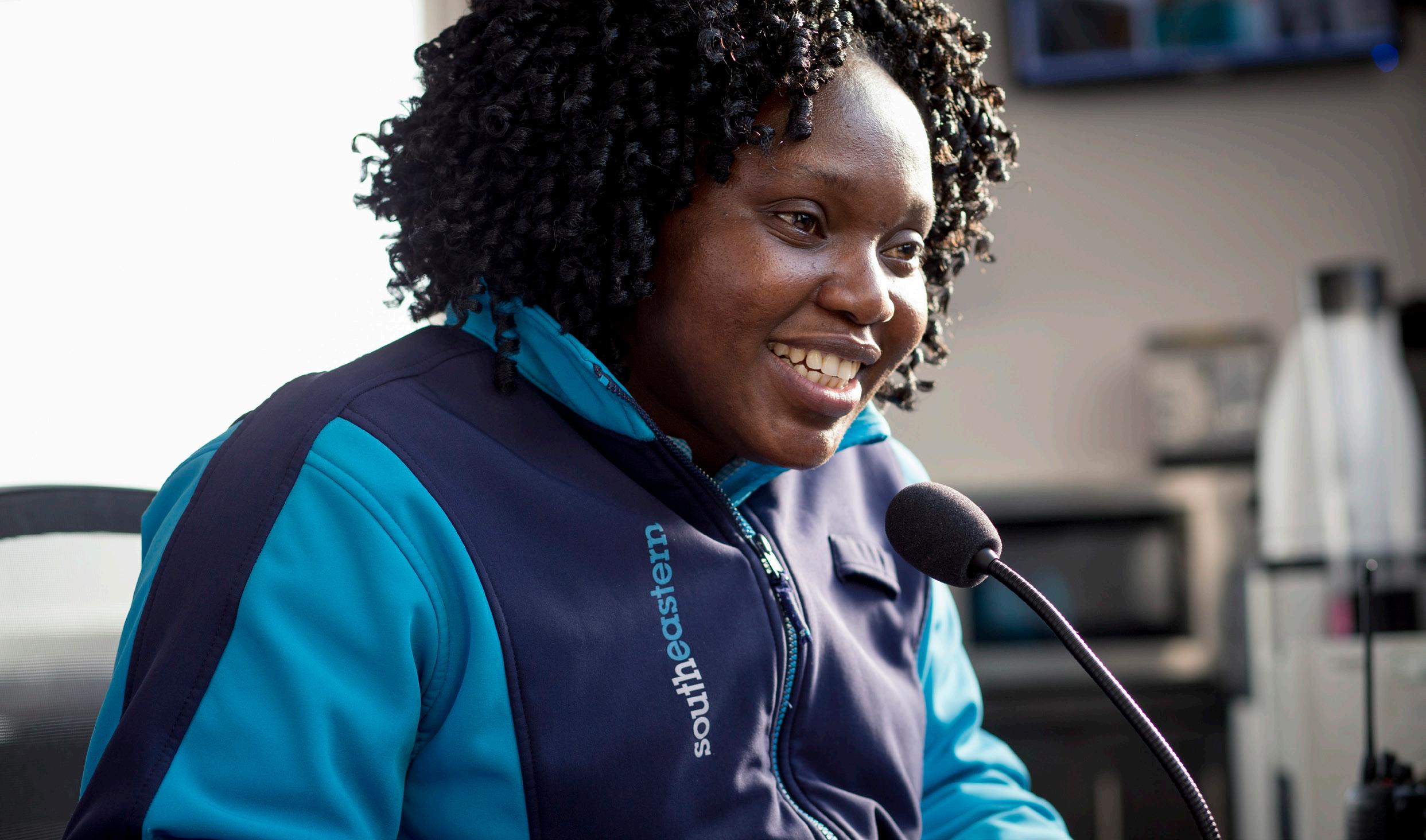
3.1.3 Transparent Application Process
Amidst the challenges stemming from the COVID-19 pandemic, Southeastern Rail proactively reshaped its recruitment process to ensure transparency and adaptability. If an organisation truly wishes to boost social mobility for the communities it serves and for its colleagues, it must not only offer a wide range of employment routes but offer opportunities which are fair and transparent.
The organisation’s framework, designed to guide potential candidates, is presented below:
Applying Online: The initial step involves candidates submitting applications through its user-friendly online platform.
Tailored Assessment: Successful applicants proceed to a tailored assessment phase. This may involve online evaluations, video and telephone interviews, and, for specific roles, assessment centre participation featuring rolealigned tests.
Structured Interviews: Southeastern’s structured approach, featuring uniform competency-based
and behavioural questions, ensures impartiality and objective evaluation.
Mandatory Medical Evaluation: To ensure wellbeing, a mandatory medical evaluation, including drug and alcohol screenings, is carried out. Safety-critical roles entail comprehensive preemployment medical assessments.
Offer and Verification: Eligible candidates receive offers pending reference verification, covering education, training, and work history. Stringent checks for UK right-to-work and criminal records are performed.
Inclusivity Focus: Southeastern Rail welcomes all applicants, irrespective of background, gender, or disabilities, reaffirming its commitment to a workforce representative of its communities.
This revamped recruitment process outlines Southeastern Rail's dedication to fairness, transparency, and inclusivity, while ensuring optimal candidate selection that is based on competency, behaviours and potential, not advantage or personal links.
15 BENCHMARKING
3.2 Goal 6. Fair Career Progression
Opportunities for career advancement for all should be based on ability and potential, not connections.
The chance to keep developing once in work and progress in a career isn’t just important from the perspective of increasing earnings, it’s about how people can continue to feel challenged and motivated, and learn, even once they have left their school years behind.
Businesses that work out how to provide those opportunities to keep growing and moving forward will do better.
3.2.1 Driver Pipeline
Southeastern has established a skilled talent pipeline. This is illustrated in the organisation’s train driver pathway, each of whom play an instrumental role in the railway network and the effective running of the country.
Operating across an expansive network encompassing 164 stations spanning London, Kent, and East Sussex, Southeastern Railway accommodates an impressive daily ridership of 400,000 commuters. Achieving a seamless customer experience hinges on effective collaboration among various personnel, including station staff, conductors, signallers, and the control centre.
According to one train driver, “Teamwork is important! From our station staff, conductors, signallers and even our control centre - we need to communicate and work together to ensure that the customer experience is the best it can be”.
Central to Southeastern’s strategy is its dedicated training centres, imparting essential skills and insights required for train operation. New recruits entering the Trainee Driver role are enrolled in the comprehensive Driver Apprenticeship Programme, ultimately leading to the attainment of a nationally recognised qualification.
The training process involves an intensive series of modular tests spanning a year to 18 months. This training encompasses 255 hours of accompanied driving, including nighttime operation to equip drivers with a comprehensive set of skills.
3.2.2 Employee Offering
Southeastern holds a deep commitment to both its workforce and passengers, valuing each employee’s contribution.
The organisation offers an impressive benefits package, in addition to a competitive salary. This package comprises a Contributory Final Salary Pension Scheme, a generous 32 days of annual leave - inclusive of bank holidays - as well as access to a diverse range of discounts through the benefits programme, encompassing retail and leisure offerings.
Southeastern also grants employees and eligible family members the privilege of complimentary travel on its rail services, facilitating personal getaways and family holidays. After meeting specific criteria, reduced-rate travel options are also extended, including rail journeys across Europe.
The organisation offers an impressive benefits package, in addition to a competitive salary.
One driver described the flexible colleague approach: “Working shifts as a driver gives me so much flexibility, I enjoy the days when I can pick my kids up from school and take them swimming”.
16 Fair career progression 6
BENCHMARKING
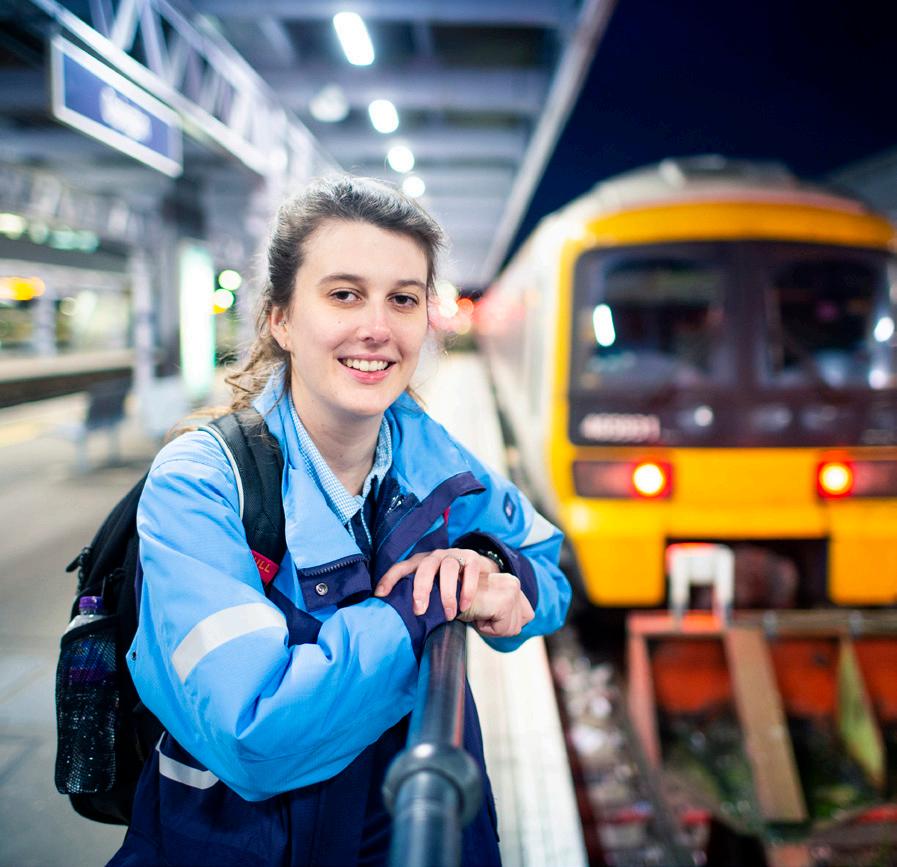
3.2.3 Investors in People
The Investors in People (IiP) framework, acknowledged on a national scale for its effective people management strategies encompassing Leadership, Support, and Improvement, has been embraced by Southeastern. The organisation embarked on its IiP journey in 2009 and is subject to evaluation against the IiP framework on a triennial basis. In a noteworthy achievement, Southeastern secured Gold accreditation against each of its IiP frameworks; Apprentices, People, and Wellbeing.
Since its inception in 1991, Investors in People has been a catalyst for enhancing work environments globally. Spanning 66 countries, its transformative efforts have positively impacted the professional lives of over 11 million individuals worldwide.
Southeastern acknowledges and internalises that enhancing its workplaces directly contributes to the quality of service offered to passengers. It recognises this interdependent relationship, and is making substantial investments in training and development initiatives, fostering professional growth among its workforce.
The organisation remains committed in its dedication to disseminating and advocating for sector-leading people management practices.
3.2.4 Upskilling and Development Opportunities
Southeastern Railway also offers an extensive range of learning and development opportunities. Utilising the Apprenticeship Levy, the organisation offers schemes that support the upskilling of colleagues by offering broad but fundamental skills development. The quality of the schemes and the teams that deliver them have been reflected in the most recent OFSTED inspection New Provider Monitoring Visit.
Levels 3 and 5 in Leadership and Management are offered to management and supervisors. These programmes are accredited by the Institute of Leadership and Management (ILM). Southeastern accepts four intakes a year with around 30 people taking up a place, although this number is increasing throughout 2024. Learners are supported with 20 per cent off the job training. The organisation also offers a number of digital learning opportunities with over 1000 online courses.
Critically, Southeastern can track usage of development programmes and mechanisms through its Engagement Survey. It also receives employee details on overall progression numbers and staff perception.
As a result of data from the Survey, Southeastern tracked an impressive 112 internal promotions across the organisation between the 1st of August 2021 and the 31st of December 2022.
The organisation ensures its colleagues always have access to coaching and mentoring as well as reverse mentoring. These less formalised development programmes are run in tandem with a newly established ‘check-in’ meeting agenda, which is completed four times a year for managers with plans in place to roll out a similar approach to frontline colleagues. The less formalised and more personal pastoral development and mentoring conversations are also driving progression across the organisation.
17
BENCHMARKING
Good health and well-being 8
3 Goal 8. Good Health and Wellbeing
Improving mental and physical health at all ages is crucial in boosting overall wellbeing to allow people to fulfil their potential.
Good health and wellbeing are often a precursor to a person being in a position to make the most of their talents and in work, and feeling they can consider taking the next step in their career. The COVID-19 pandemic shone a stark light on the health inequalities our country has and how they impact on wider life.
3.3.1 Mindful Employer
Mindful Employer is a national initiative supporting employers to take a positive approach towards mental health at work. By signing the Mindful Employer Charter employers make a public declaration of their ambition to support the mental wellbeing of their staff.
Southeastern is proud to have signed up to the Mindful Employer Charter. By signing the charter, it is displaying its continued commitment to supporting mental health within the workplace and the wider community - and a desire to provide better mental health support to its employees.
In signing the Charter, Southeastern Railway has committed to a number of support values for its people:
• To provide non-judgemental and proactive support to staff with experience of mental ill-health.
• To not make assumptions about a person with a mental health condition and their ability to work.
• To be positive and enabling toward all employees and applicants with a mental health condition.
• To support line managers in managing mental health in the workplace.
• To ensure they are fair in the recruitment of new staff in accordance with the Equality Act (2010).
• To make it clear that people who have experience of mental ill-health will not be discriminated against.
3.3.2 Employee Benefits
Southeastern’s comprehensive employee benefits package encompasses complimentary travel privileges on a range of rail services, including Southeastern, Southern, Thameslink, Greater Northern and Gatwick Express.
Following a specified qualifying period, employees are entitled to cost-reduced travel benefits on additional train operators, even extending to European services. These advantageous travel benefits are also accessible to eligible family members.
In addition to travel perks, employees can take advantage of an extensive array of discounts. The Extra Mile platform allows peer-to-peer recognition and access to benefits such as the cycle to work scheme, high street vouchers at a discount and a wellbeing centre.
Following a specified qualifying period, employees are entitled to cost-reduced travel benefits on additional train operators, even extending to European services.
18
BENCHMARKING
3.3.3. Railway Mental Health Charter
Southeastern Railway is the founder of the Railway Mental Health Charter (RMHC). The RMHC is a framework to help promote, manage and support workforce mental wellbeing. Aligned with good practice, the Charter responds to industry needs and provides targeted actions and resources for improving mental health across the sector.
As a result of his personal experience, dedicated Southeastern employee - Lee Woolcott-Ellis - pioneered the work in developing a mental health advocacy programme for the organisation – founding the RMHC in collaboration with the Railway Safety and Standards Board (RSSB).
The RMHC is a comprehensive framework to help rail companies promote, manage and support workforce wellbeing. On the back of its creation, 101 other companies have signed up to the charter across England, Ireland, Scotland and Wales.
The Charter was established on the back of Lee developing a previous trailblazing mental health advocacy programme to support colleagues who experienced witness suicides, attempted suicides and those suffering violence and antisocial behaviour, as well as other issues.
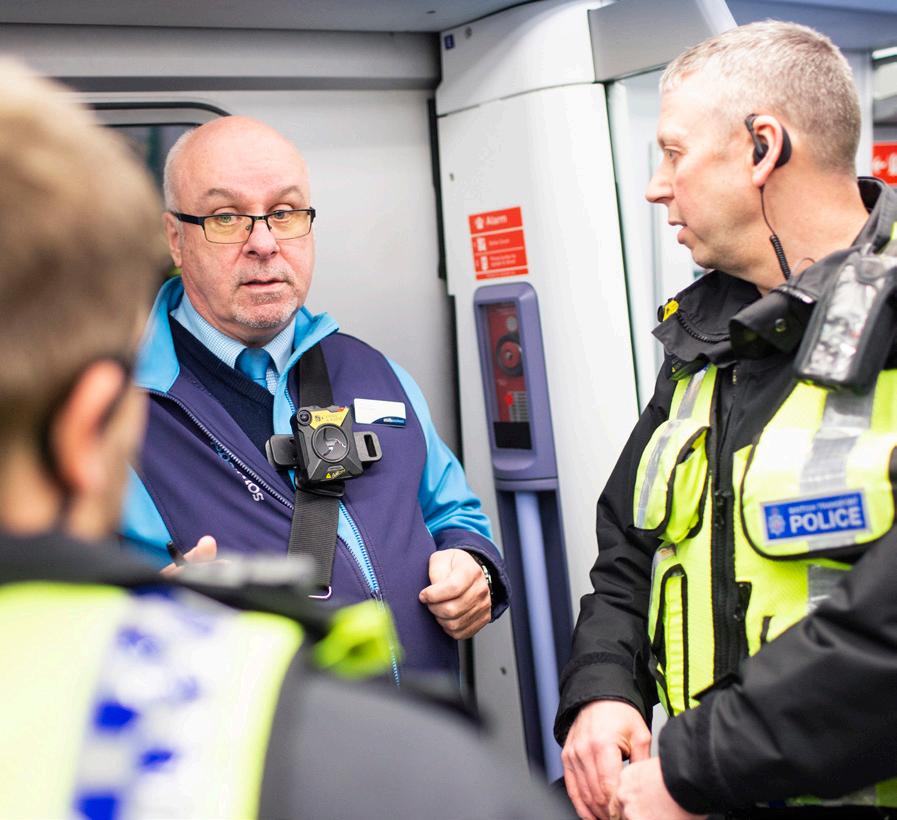
This initiative equipped staff with a confidential support system, connecting them with trained colleagues - advocates - familiar with the unique challenges of the rail industry. These advocates help to guide individuals in seeking appropriate support and contributing to an evolving programme tailored to colleagues’ needs.
Volunteers, chosen for their dedication, undergo extensive training, earning a British Association for Counselling and Psychotherapy (BACP) level 2 accreditation. Their profiles, featuring photos and personal summaries, are accessible on the intranet, promoting transparency and accessibility. Colleagues engage with advocates through various channels, with the programme emphasising face-toface interactions for enhanced support.
The programme, in operation since 2018, has seen 1,500 colleague engagements with only four instances requiring elevated welfare concerns. Southeastern’s risk escalation process ensures timely intervention when needed. Notably, the programme has fostered trust amongst colleagues, with employees disclosing historic abuse cases for the first time, receiving professional assistance.
In 2023 Southeastern also launched TRiM (Trauma Risk Management) which is a peer-delivered risk assessment and ongoing support system, designed specifically to help in the management of traumatic events. TRiM Practitioners are non-medical personnel who have undergone specific training to allow them to understand the effects that traumatic events have upon people. This could include support for those that have witnessed a suicide, an accident or those involved with an assault. They are not counsellors or therapists, but colleagues who understand confidentiality and have good listening skills to allow them to offer practical advice and assistance. TRiM team members will also be working towards a BTEC qualification in Trauma Risk Management.
19
BENCHMARKING
11
3.4 Goal 11. Infrastructure for Opportunity
For communities with less opportunity on the doorstep, being able to get to opportunities where they are is absolutely essential.
That’s why investment in the roads and railways that connect people up with opportunities matters so much. It’s an enabler that can unlock people’s chances to go for roles that might not be on the doorstep but can turbocharge their careers. With COVID-19 and the growing trend of hybrid working, both from home and in the office, it’s a real chance to lower the physical barriers to people being able to apply for jobs that aren’t on their doorstep. Infrastructure for opportunities will always matter and Southeastern Railway is directly developing the innovative physical infrastructure that connects people and places to opportunity.
3.4.1 Thanet Parkway Transport Hub
In partnership with Kent County Council, Thanet District Council, South East LEP, Network Rail, the Department for Levelling Up and the Department for Transport, Southeastern Railway has delivered a crucial infrastructure project - the creation of a large-scale rail station and transport hub in Thanet. The project is aimed at rejuvenating the Thanet area and increasing connectivity across Kent, preempting large-scale housing and re-developments across an under-resourced region.
The Thanet Parkway development opened on 8th September 2023. It will serve a crucial role within an integrated transport hub, not only facilitating vital rail connections to London and various Kent destinations - in one of the country’s acute social mobility coldspots - but also offering a multifaceted transportation centre.
A newly constructed road also establishes a direct link between the station and A299 Hengist Way. Parking provisions encompass accommodation for 293 cars, inclusive of designated spaces for 16 Blue
Badge holders, accompanied by a notable presence of electric vehicle charging points. Well-defined pickup and drop-off zones, as well as a dedicated station bus stop, contribute to seamless passenger transit.
The station’s configuration extends cyclist and pedestrian pathways to Cliffsend village, complemented by the availability of bike racks and storage amenities. Environmental considerations are central to the plans, with thoughtful landscaping surrounding the station, contributing to postconstruction ecological restoration.
Thanet Parkway stands as a conduit for highspeed commuter connections and direct routes to an expansive array of leisure destinations. Prospective travellers can seamlessly journey to the theatre offerings in London, embark on a historical exploration in Canterbury, or indulge in coastal exploration along Kent’s scenic beaches.
Selected travel times to key destinations include:
• 4 minutes to Ramsgate
• 10 minutes to Broadstairs
• 15 minutes to Margate
• 17 minutes to Canterbury West
• 32 minutes to Ashford International
• 70 minutes to St Pancras International
The Thanet Parkway development stems in part from the proactive efforts of Kent County Council who sought to enhance transportation connectivity in East Kent while bolstering the local economy.
The project’s overarching objectives encompass:
• Enhancing London journey times
• Heightening East Kent’s allure to employers
• Fostering economic growth through unlocking new developmental prospects
• Minimising environmental implications for local residents
• Amplifying accessibility and employment prospects within the Thanet region through the establishment of Thanet Parkway Station.
The station opened on 8th September 2023 and will continue to play a crucial role in Kent and the wider South East’s socioeconomic development moving forward.
20 Infrastructure for opportunity
BENCHMARKING
3.4.2. Delivering Strategic Infrastructure across Kent
In partnership with Medway Council, Southeastern Railway has proposed plans to upgrade and restore the 19km Grain Branch line in the Hoo Peninsula and build a new train station at the midway point of the line, named Sharnal Street.
The Hoo Peninsula, located across the River Medway from Gillingham and the Medway area, is a traditionally disconnected area of Southeastern’s network with the area being unreachable by rail since 1968. The paused £63 million proposal would allow residents of the Hoo Peninsula to access the main line which has regular services to London, boosting social mobility and access to opportunity across the region.
Southeastern is also working on increasing overall line speed so the journeys into London are quicker across the network, increasing connectivity. This focus has already delivered increased journey time from Ramsgate and Ashford into London.
3.4.3 Access-for-All
Southeastern Railway’s Stations and Infrastructure team is proactively committed to the Department for Transport’s Access for All scheme. The organisation is currently transforming the way it works and operates.
Inclusivity is crucial to the Stations and Infrastructure team, especially in accessibility improvements. The team carries out consultations with local user-groups to investigate how it can improve the stations and prioritise certain user groups. One example is a local Society for the Blind, which are brought in on the design stage of station improvements.
The stations also offer cycling hubs and bicycle storage facilities, promoting a healthier commute and lifestyle for communities.
3.4.4 Supporting Local Business
Southeastern Railway utilises its infrastructure presence and role as an anchor institution to directly support local economies by championing numerous businesses throughout its network.
For example, the organisation implemented a sequence of ‘Shop Local’ email campaigns. These initiatives communicated to a subscriber base exceeding 60,000 passengers who had opted to receive promotional emails and showcased local enterprises providing delivery services. The campaigns received positive feedback from both business owners and passengers.
A senior specialist for economic development at a regional council commended Southeastern’s proactive efforts: “Just been made aware of the fantastic marketing Southeastern are doing to promote local food businesses during the Covid-19 crisis.”
Southeastern’s commitment to local communities has continued after the lockdown period, as it maintains collaborations with Destination Management Organisations, local businesses and attractions spanning Kent, London, and East Sussex.
These partnerships were initially geared toward comprehending the multifaceted impacts of the Covid-19 pandemic. Through these efforts, Southeastern is aligned with its partners to foster tourism growth, boost visitor engagement, and inspire rail travel among passengers, contributing to the revitalisation of local economies across the region.
3.4.5 Covid-19 Recovery
Built during the Covid-19 pandemic, Southeastern Railway is actively engaged in community partnerships, lending support to local initiatives via its backing of Community Rail Partnerships.
These collaborations are vital in enhancing stations across the Southeastern Railway network. By establishing and maintaining these connections, Southeastern Railway is actively working to re-engage customers with rail travel, while also contributing to health and well-being, combating social isolation, and advocating sustainable and healthy commuting.
The Community Relations Manager highlighted initiatives such as the cycle-to-work program, organised bike rides, and group walks as part of these efforts.
21
BENCHMARKING
3.5 Goal 13. Harnessing the Energy Transition
3.5.1 Current Impact
Rail travel is already one of the most environmentally friendly ways to travel. Even though rail travel accounts for 10 per cent of passenger miles, it is responsible for just 1.4 per cent of all transport emissions. Southeastern is committed to promoting a shift from fossil fuel powered cars onto their services which will help improve local air quality and reduce local carbon emissions. This is supported by their Modal Shift and Air Quality Strategies adopted in 2023.
Southeastern is taking industry leading action by having published their first Sustainability Strategy that aligns with RSSB’s Sustainable Rail Blueprint. The Strategy focuses their work across three core themes, with eleven goals that guide the work towards improving sustainability.
In November 2023 Southeastern hosted what they believe was the first train operating company climate resilience conference bringing together 144 stakeholders from our company and the broader rail industry and supply chain partners.
A Biodiversity Strategy was developed in partnership with the Kent Wildlife Trust supported by a vision to enhance biodiversity across the estate and deliver a measurable net gain in biodiversity by 2035. This will require a step change in Southeastern’s approach to biodiversity management to support the proactive management of all their natural assets.
Southeastern takes pride in its current environmental accomplishments. Its green
agenda is underpinned by the accreditation of ISO 14001 - Environment Management System - and ISO 50001 - Energy Management Systemacross its operational spectrum.
The organisation’s commitment to sustainability is characterised by the utilisation of electric train fleets powered by energy sourced from a nuclear generation for both mainline and metro services. An innovative regenerative braking system equips 75 per cent of the trains, allowing the generation of electrical energy during braking, subsequently channelled back into the system to power other trains. This groundbreaking technology translates to a 10 per cent reduction in overall electrical energy consumption for train operation.
In pursuit of greater efficiency, Southeastern Railway is retrofitting its highspeed trains to enable electricity regeneration along the St Pancras to Ashford route, with an anticipated energy reduction of 16.5 per cent. This initiative compliments the already existing regeneration capabilities throughout the Southeastern network. The company’s metro, mainline services, and train servicing depot are all powered by electricity from nuclear sources, obtained through a partnership with Network Rail.
To support its renewable energy portfolio, Southeastern has successfully integrated close to 2,900 solar roof panels into its train servicing depots. Notably, these panels generated sufficient electricity over 2020/21 to sustain the power needs of 166 households.
In tandem with its sustainable initiatives, Southeastern Railway continues the transition to energy-efficient practices by replacing conventional lighting in both stations and train servicing depots with advanced LED lights. As well as being more energy efficient, LED lights offer better illumination and require minimal maintenance, aligning with Southeastern’s sustainability goals.
22 Harness the energy transition 13
BENCHMARKING
3.5.2 Environmental Targets
Southeastern Railway has set ambitious targets against four key aspects of the organisation’s environmental performance.
The targets help focus its activities in areas associated with its use of electricity to operate trains, the gas and electricity to operate its stations, depots & offices, the carbon associated with overall energy use, and how it manages its waste.The table below sets out its targets and Southeastern’s current performance against them. The targets are set to 31 March 2024:
Additionally, Southeastern has developed its first Decarbonisation Roadmap outlining their ambition to become net zero carbon by 2050 underpinned by science-based carbon reduction targets for the short and long term.
3.5.3 Carbon Footprint Calculator
Southeastern Railway offers a convenient customer carbon footprint calculator, allowing users to input their departure and arrival stations. This tool provides insights into the environmental implications of their travel choices, comparing both train and car commutes.
Passengers gain a clear understanding of the carbon emissions associated with their travel choices.
The calculator operates on the following parameters:
• Car travel: Calculations are founded on the premise of an average petrol car, equating to 0.23532 kg CO2e per passenger mile.
• Train travel: National Rail journeys are factored into the calculation, attributing 0.07147 kg CO2e per passenger mile.
Through the use of this tool, passengers gain a clear understanding of the carbon emissions associated with their travel choices, facilitating informed decisions that align with sustainability objectives.
23 Traction Energy Vehicle Miles per kWh* (Period 10) 0.241 0.271 Yes Combined Site Energy GWh* (November) 2.375 2.269 Yes Combined Site and Traction Energy kgCO2 per Vehicle Mile* (Period 10) 0.973 0.791 Yes Waste diverted from Landfill (Period 11) 95.00 98.84 Yes Environment
Indicator MAA Target MAA Actual On track? BENCHMARKING
3.5.4 Future Ambitions
Southeastern Railway is dedicated to minimising its environmental impact wherever possible and achieving a net-zero carbon footprint.
Under new ownership, the company is working on a comprehensive plan to reach this goal and also enhance their weather and climate resilience.
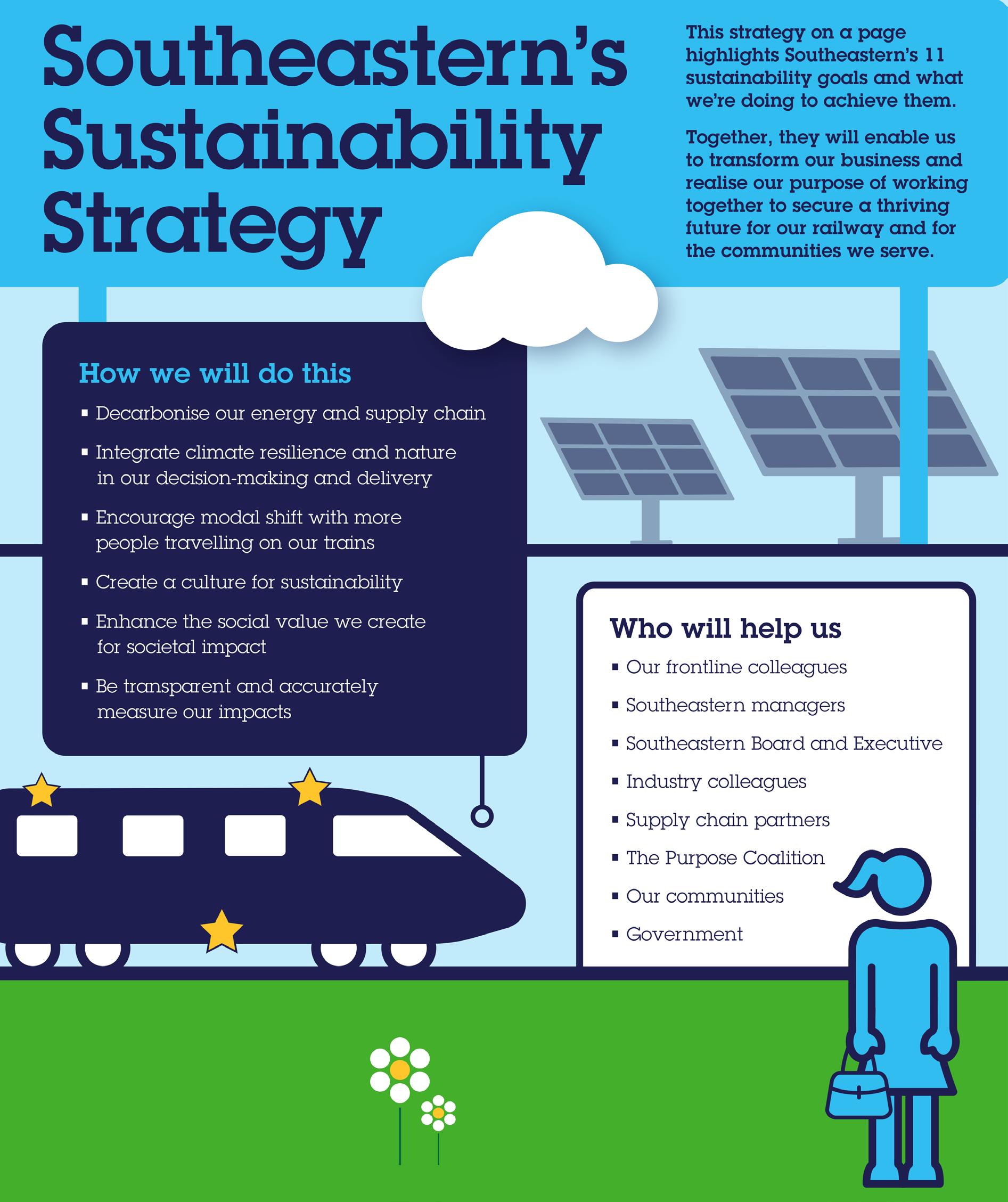
24
BENCHMARKING
Future plans also look at developing their first Climate Transition Plan to effectively address the multiple challenges and opportunities presented by climate change and the transition to a low carbon economy.
In the meantime, Southeastern is actively managing its environmental effects by investing in energy improvements, reducing landfill waste, and encouraging staff to find innovative ways to reduce their environmental impact.
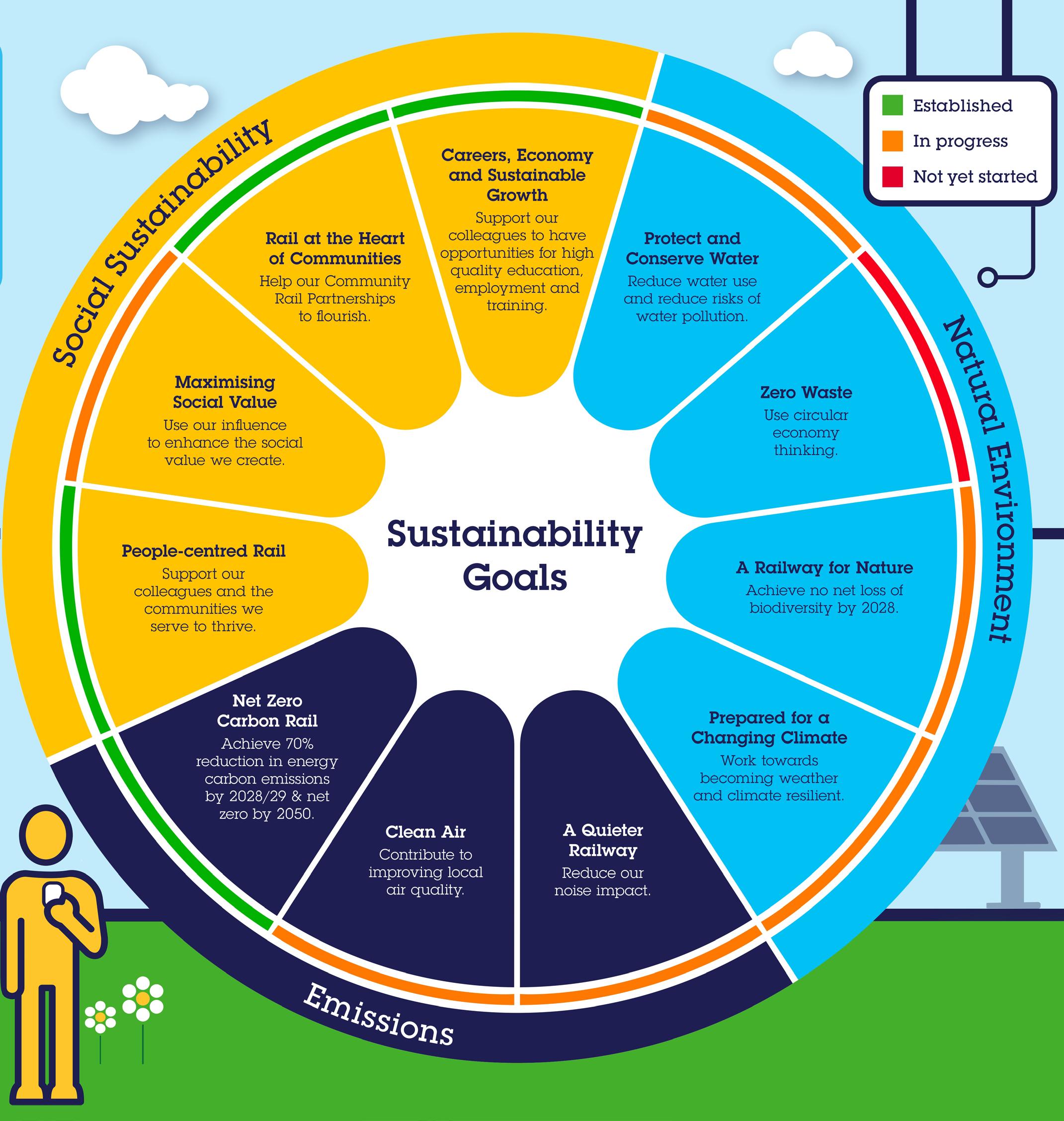
25
BENCHMARKING
3.6 Goal 14. Achieve Equality through Diversity and Inclusion
Creating a level playing field for all has the potential to fully unleash Britain’s potential for the first time.
Diversity extends beyond gender and ethnicity to sexuality, disability and other challenges that can lead to disadvantage. When we look across the leadership roles in business, the judiciary, government and politics, there is a continued skew towards those from the most privileged backgrounds. Britain will not succeed unless and until its leadership roles, wherever they are found in our society, better reflect the wider society at large.
3.6.1 Diversity Leader
Southeastern Railway places a significant emphasis on promoting inclusivity and diversity throughout the organisation. It is committed to nurturing an environment where all employees feel empowered to be their authentic selves and flourish. This dedication has resulted in the prestigious recognition of being designated a Financial Times Diversity Leader (FTDL).
Positioned among a select group of 850 employers spanning 16 European countries, Southeastern Railway’s efforts on Equality, Diversity, and Inclusion (EDI) are more than just rhetoric. The organisation demonstrates a resolute commitment to driving change and cultivating an inclusive environment, it is actively engaged in initiatives that facilitate this positive transformation.
3.6.2 WORK180
Southeastern has been approved to join WORK180 as an Endorsed Employer for Women. This is part of a wider effort to break down traditional notions of the rail industry as being heavily male-dominated, fulfilling its role as an industry leader and anchor institution across the South East.
WORK180 focuses on attracting female job seekers and does so by approving employers with a genuine commitment to supporting women at work, making it easy for job seekers to find the UK’s best workplaces.
Southeastern is committed to supporting women at work and to attracting and retaining the best talent.
3.6.3 Inclusive Employer
Inclusivity is extremely important to Southeastern and as such it maintains an active membership of ‘Inclusive Employers’.
Inclusive Employers are experts on workplace inclusion. It is the first and leading membership organisation for employers who are committed to prioritising inclusion and creating truly inclusive workplaces. In inclusive workplaces, all employees are valued and contribute towards the success of their organisation.
This will ensure that Southeastern’s processes enable it to build and develop inclusive workplaces.
3.6.4 Colleague Networks
Southeastern Railway’s Colleague Network Groups (CNG) promote inclusion, collaboration and dialogue within the organisation. It currently has 6 CNGs: WIRE – Women in Rail Empowerment, LGBT+ Southeastern, Mind The Gap – Mental Health, CultuRail – cultural diversity, AccessAbility – accessibility inclusion, and the recently launched Armed Forces Network
26 Achieve equality, through diversity & inclusion 14
BENCHMARKING
4.6.5 Business Disability Forum
Southeastern Railway has established a partnership with the Business Disability Forum, uniting efforts to eliminate impediments within recruitment policies, procedures and methodologies that may inadvertently marginalise people with disabilities.
The principle of equitable access to opportunities resonates deeply within the organisation. By upholding the value of every individual’s capabilities, Southeastern is able to enhance its performance for clients and the communities it serves.
3.6.6 Gender Pay Gap Reporting
Southeastern Railway demonstrates a commitment to transparency through its comprehensive gender pay gap reporting, emphasising its dedication to fostering diversity and gender equality.
Acknowledged as an ‘Endorsed Employer’ for women by WORK180, Southeastern’s alliance underscores a genuine commitment to supporting women in the workforce, facilitating the identification of top-tier workplaces for female job seekers. This dedication extends to all 4,500 employees, with an unwavering commitment to fair treatment and remuneration, regardless of gender.
In a drive to rectify gender imbalances traditionally associated with the industry, Southeastern actively promotes the recruitment, retention, and advancement of women across all levels within the organisation. This has been particularly impactful, with female drivers surging by 137 per cent over the past five years.
Reflecting progress, the mean gender pay gap in 2022 narrowed to 17.84 per cent, a marked
improvement from the previous year’s 19.5 per cent. Southeastern is committed to collaboration with colleagues, Network Rail, and the wider rail industry to encourage and retain women across the sector to improve on these numbers.
3.6.7 Championing Gender Equality
Southeastern champions women in rail through the Women in Rail Empowerment (WIRE) colleague network group. This initiative ensures equitable opportunities, and the impact of such efforts is evidenced in the doubling of female train drivers from 40 to 95 since 2019. Partnerships, including the collaborative book “My Mummy is a Train Driver,” challenge stereotypes and inspire more women to embrace rail roles.
Sustained initiatives have delivered positive outcomes, with a retention rate of 92 per cent for women employees and improved gender balance representation in new hires. Collaborations with ‘Socially Recruited’ and’ Study Smarter’ extend outreach to potential female applicants, while the WORK180 endorsed employer status further validates Southeastern as a conducive working environment for women.
Southeastern Railway also - in early 2023became the first transport company to become independently accredited as a Menopause Friendly Employer. Through Menopause in the Workplace the Menopause Friendly Accreditation is the only accreditation that sets clear standards which must be met, recognising proven practices that embrace menopause in the workplace.
This, in conjunction with a leading suite of family friendly policies, is central to Southeastern’s leading gender balance family offering.
27
BENCHMARKING
04: Analysis
Southeastern Railway’s commitment to boosting social mobility extends far beyond its immediate operations, delivering a profound and farreaching impact in a number of key areas, reinforcing the wider social dividend potential rail companies can have on their colleagues, and the communities they serve. By aligning its internal goals with strategic regional needs and country-wide objectives, Southeastern Railway has the potential to grow its role even further as an anchor institution, positively impacting numerous stakeholders and boosting social mobility across the South East.
One critical aspect of this agenda is the promotion of economic growth. Rail networks act as vital economic arteries - connecting towns and cities - facilitating the flow of goods, services, and people. This improved connection attracts businesses, investors, and tourists, contributing to job creation and increased prosperity. Rail transport also reduces road congestion, leading to shorter commute times, improved air quality, and reduced greenhouse gas emissions. This benefits not only rail passengers but also everyone who shares the roads and breathes the air.
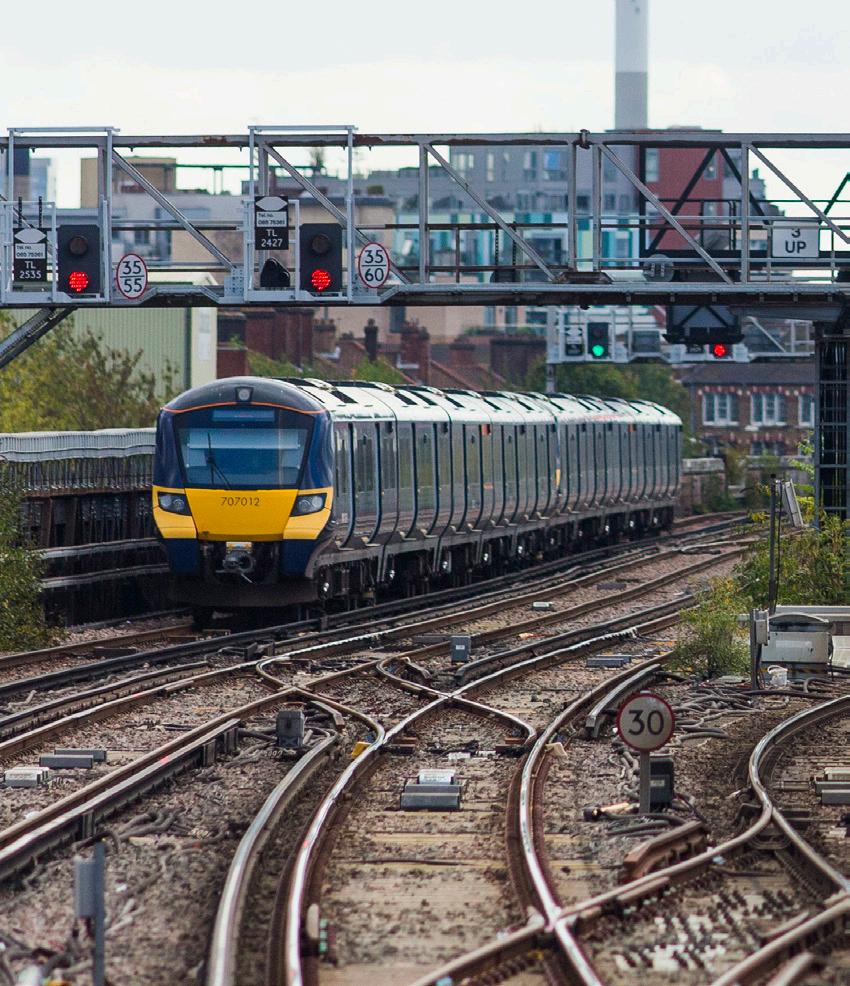
The social inclusion aspect of rail networks is equally essential. Southeastern’s network provides accessible, affordable, and reliable transportation options, connecting people to education, family, employment, healthcare and social activities. This reduces inequalities and improves overall quality of life, fostering social inclusion.
28 ANALYSIS
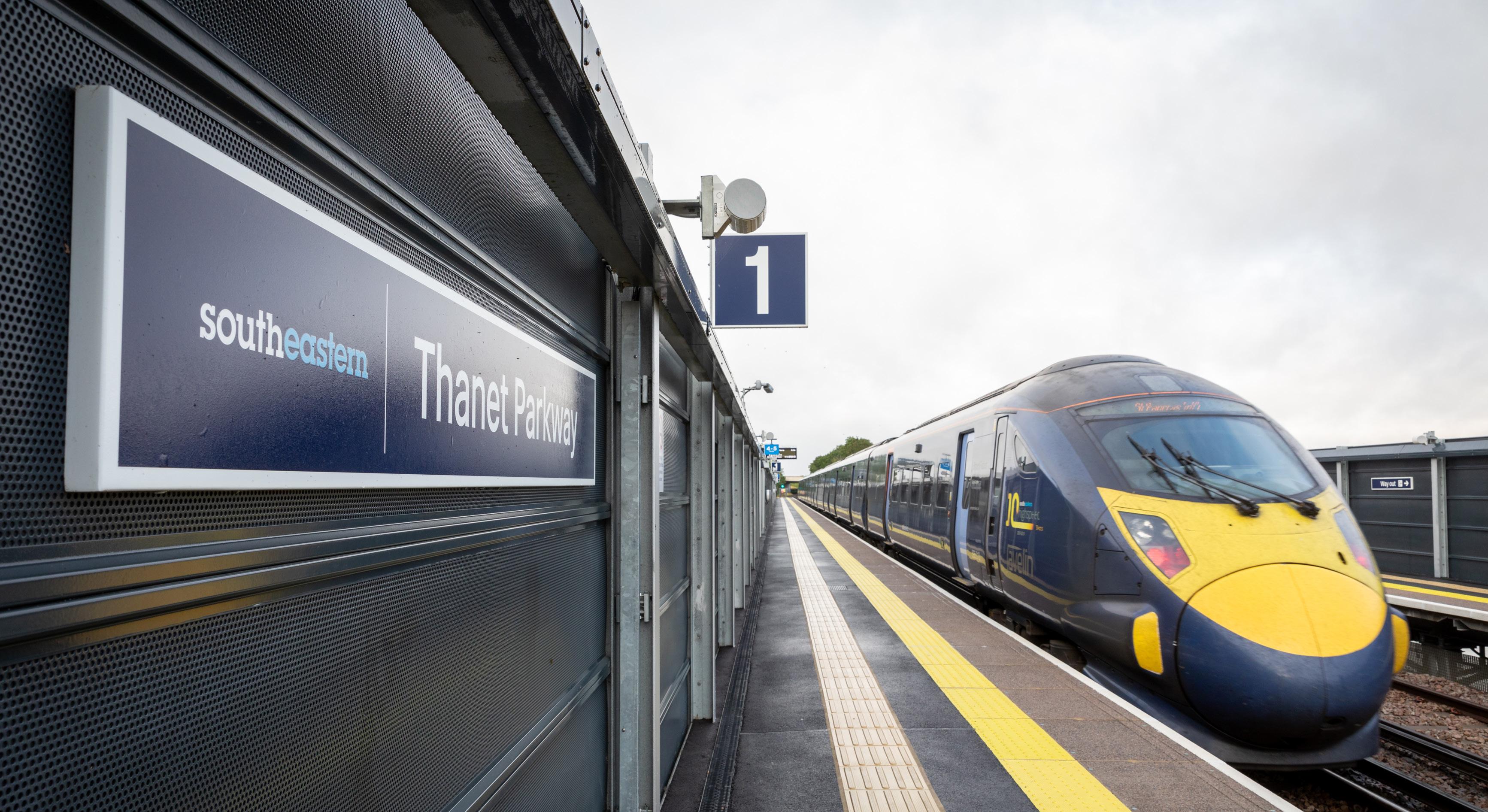
The far-reaching impact of rail extends further to enhancing the quality of life in communities. Rail services open up opportunities for tourism and cultural exchange, boosting local economies and promoting cultural understanding. Southeastern displays its work in this area through the championing of local businesses over the COVID-19 pandemic.
Train stations serve as hubs for community development, as has been experienced through the impressive Thanet Parkway Hub Development. Southeastern is attracting businesses, encouraging urban development, and creating vibrant public spaces around stations, revitalising neighbourhoods and building thriving communities.
Rail services can also combat social isolation by connecting people in remote or underserved areas with larger urban centres, improving wellbeing and directly connecting individuals and communities with opportunities. Despite being close to London, the South East has some of the most acute social mobility coldspots across the UK. Southeastern is already linking struggling regions with support mechanisms and life-changing roles, boosting social mobility.
Southeastern Railway is not only playing a crucial role at the centre of the local and national economy, its transport services are also creating a lasting, positive impact on the communities it serves. By fostering economic growth, environmental sustainability, and social inclusion, rail services are at the centre of any thriving community - enhancing overall wellbeing and delivering a significant social dividend to the country and our lived environment.
Southeastern is already linking struggling regions with support mechanisms and life-changing roles, boosting social mobility.
By focusing now on how it can redirect its resources to focus and boost social mobility, Southeastern has the potential to go even further in delivering for its passengers, colleagues, and the communities it serves.
29 ANALYSIS
05: Recommendations
This Action Plan has explored Southeastern Railway’s comprehensive best practice and approaches to boosting social mobility and delivering social impact across its communities, for its colleagues, and for its passengers.
The organisation’s partnership with the Purpose Coalition and the establishment of this Social Mobility Action plan represents a commitment from the organisation to go even further in delivering against the Purpose Goals, extending its already comprehensive role as an anchor institution in the region.
The strategic recommendations below operate as potential next steps for the organisation, focusing in areas of achievable weakness but also in ambitious areas of particular strength where the organisation can build on its sector-leading approaches and go even further.
5.1 Industry Leadership
Southeastern Railway has a unique opportunity to demonstrate industry leadership and advocacy on mental health by leveraging its position as an anchor institution in the communities it serves. Poor mental health is a significant barrier to people accessing opportunities, stifling an individual's social mobility.
To effectively prioritise mental health and connect people with support mechanisms, Southeastern should consider a number of strategic steps.
The organisation could establish comprehensive mental health awareness programmes for both employees and passengers, including workshops, seminars, and informational campaigns aimed at reducing stigma and increasing the understanding of mental health issues.
Southeastern should look to make mental health first aid awareness briefings available to all employees, enabling them to recognise signs of distress in passengers and colleagues and offer initial support, empowering individuals to connect those in need with appropriate resources. Building on the recently launched Safeguarding Training
it could also explore training frontline staff in acute crisis intervention techniques - equipping them with the skills to de-escalate the most severe situations involving passengers in distress and connect them with appropriate mental health services.
More widely, Southeastern should look to use the influence of the organisation to further advocate for policies and initiatives that prioritise mental health across the transportation industry, collaborating with other transport providers to create a collective voice for mental health advocacy. To facilitate this, Southeastern should look to form a strong regional partnership with Kent and Medway NHS and Social Care Partnership Trust - a fellow Purpose Coalition member - to design awareness campaigns specific to the industry and the region.
By implementing these recommendations, Southeastern Railway can position itself as a leader in the transport industry in relation to mental health support and advocacy. The company's role as an anchor institution allows it to connect people with vital support mechanisms, improving overall wellbeing and boosting social mobility in strategic areas.
30 RECOMMENDATIONS
5.2 Internal Progression
Southeastern Railway has a significant opportunity to enhance internal progression opportunities, with a specific focus on promoting gender diversity and embracing neurodiversity. Currently, 100 out of 380 apprentices at the organisation are women – this highlights the space for impact the organisation could have in a traditionally male dominated industry.
Southeastern Railway can unlock its potential for greater social impact and organisational growth by creating opportunity bridges aimed at encouraging applications from underrepresented communities, particularly those in social mobility coldspots. This initiative can be a driving force behind increased ethnicity, gender, and neurodiversity throughout the organisation.
The organisation should set specific targets to shape the composition of new recruits and departments across the organisation. For instance, a clear goal could be to ensure that it is improving 10 percentage points year on year for its gender and ethnicity diversity metrics, as well as committing to measure socioeconomic diversity.
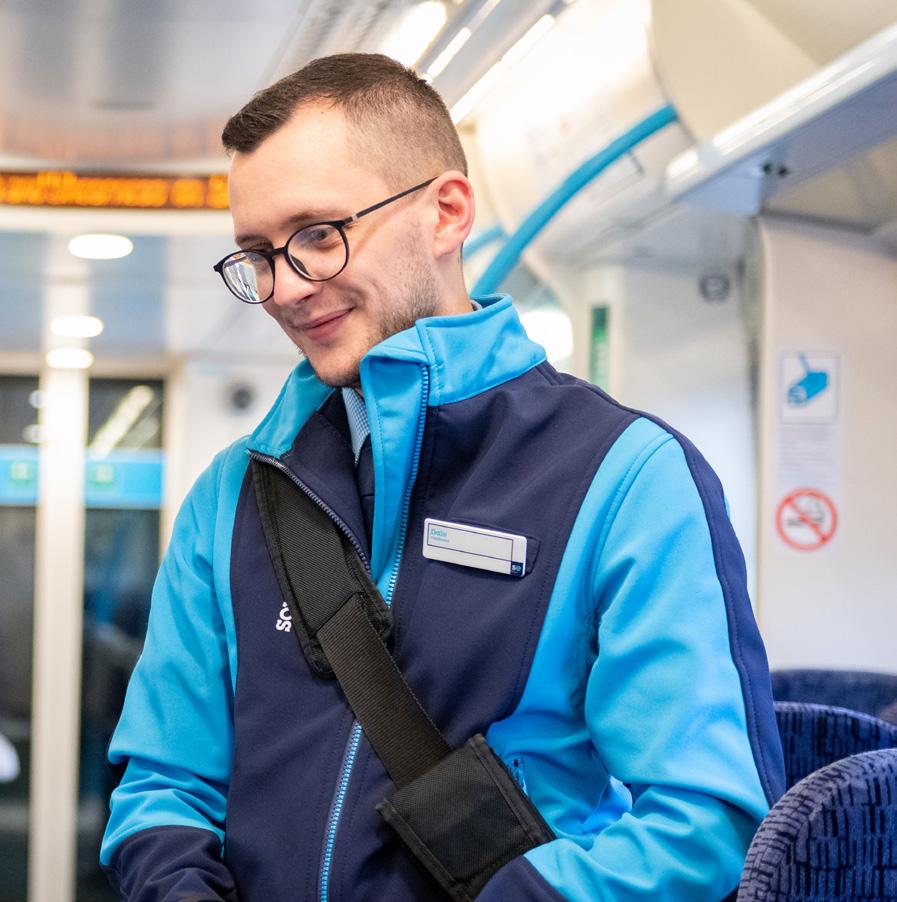
Southeastern’s newly established graduate programme also presents an opportunity to put into practice proactive diversity actions. The organisation should look to establish a formalised graduate programme, with specific socioeconomic and demographic targets, leaning on universities and educational organisations’ data in these areas. The programme should be directly supported by pastoral care from the People Team, with tailored support mechanisms and channels to ensure all people - no matter their background - are able to progress through the scheme. After the first initial management year, Southeastern should also empower graduates to discuss what team they would like to work with in the second year - where is possible and where is best for organisational needs.
Specifically focusing on female representation across the organisation, Southeastern could also explore joining the Purpose Coalition’s Women in the Workplace group, taking deliberate actions on improving menopause policy based on firsthand experiences and best practice across all sectors. Building on its sector-leading Menopause Friendly Employer Accreditation achieved earlier this year, Southeastern could join a number of these like-minded organisations in putting in place a Menopause Action and Employee Engagement Plan. The menopause is often a second or third glass ceiling for women. In joining the working group - led by Rt Hon Anne Miltonand implementing these measures Southeastern can break down barriers to opportunity and progression, as well as improving the wellbeing of women across the organisation.
This approach will enable Southeastern to tap into a more diverse range of skills, experiences, and perspectives, ultimately driving innovation and success whilst positively impacting underrepresented groups and the organisation’s internal workforce.
31 RECOMMENDATIONS
5.3 Early Talent Pipeline Impact
Southeastern Railway has an opportunity to amplify its community impact through strategic outreach initiatives aimed at schools, colleges, and further education institutions - to not only effectively communicate the wide range of opportunities and career pipelines within the organisation but offer general careers advice and raising attainmentboosting social mobility.
The organisation in recent years has up-scaled its school partnership and engagement agenda, visiting and establishing relationships with a number of schools across its network. The success of these initiatives, including a number of careers fairs and partnerships, means Southeastern is well-positioned to take the next step in this agenda through more strategic targeting in the communities of most need.
To identify areas of highest social impact, This Is Purpose has applied the Index of Multiple Deprivation (IMD) across the social mobility coldspots identified in the Appendices.
The IMD combines information from seven indicators to produce an overall relative measure of deprivation for small areas in England. The indicators are: Income; Employment; Education; Skills and Training; Health and Disability; Crime; Barriers to Housing Services; Living Environment. All are barriers to social mobility.
The application of the IMD’s indicators to specific areas allows the user to rank 32,844 Lower-layer Social Output Areas (LSOAs) in England from most deprived to least deprived. LSOAs comprise between 400 and 1,200 households and have a usually resident population of between 1,000 and 3,000 persons.
In identifying the most deprived LSOAs within wider social mobility coldspots in its network, Southeastern should look to forge partnerships
with primary and secondary schools, as well as nurseries and sixth-form colleges close to or in these smaller areas:
Hastings
• The St Leonards Academy, secondary school. Ranked 4893 out of 32,844 LSOAs.
• St Paul’s CE Academy, secondary school. Ranked 4158 out of 32,844.
Thanet
• Hartsdown Academy, secondary school. Ranked 2616 out of 32,844.
• Garlinge Primary School. Ranked 2616 out of 32,844.
• The Royal Harbour Primary Academy. Ranked 933 of 32,844.
Chatham, Medway.
• St John Fisher Catholic Comprehensive School, secondary school. Ranked 1727 out of 32,844.
• Saint Michael’s RC Primary School and Nursery. Ranked 1727 out of 32,844.
Gillingham, Medway.
• Brompton Academy, secondary school. Ranked 144 out of 32,844.
• Academy of Woodlands, secondary school. Ranked 3301 out of 32,844.
Gravesham
• Thamesview School, secondary school. Ranked 2760 out of 32,844.
• Saint John’s Catholic Voluntary Aided Comprehensive School, secondary school. Ranked 2760 out of 32,844.
• Whitehill Primary School and Nursery, primary school.
Ranked 3588 out of 32,844.
• Kings Farm, primary school. Ranked 4102 out of 32,844.
32
RECOMMENDATIONS
In these areas of high deprivation, the following recommendations could be considered:
Southeastern should first develop dedicated outreach programmes tailored to engage students at various stages of their educational journey. These programmes should emphasise the diverse career possibilities within the rail industry and extend continuous support throughout a student’s educational path.
Career workshops and seminars should become regular fixtures within schools and colleges, covering a wide spectrum of topics such as career paths within the rail sector, necessary qualifications, and essential skills. These sessions will empower students with knowledge and insights into potential career choices.
Creating mentorship programmes within Southeastern Railway can be also highly beneficial for both sides. Employees from the organisation can serve as mentors to students, offering guidance and inspiration. The establishment of internship opportunities within the organisation can also provide students with valuable hands-on experience, contributing to the development of a future talent pipeline.
Regular feedback and evaluation mechanisms should be put in place to gauge the effectiveness of these outreach programmes. Surveys, input from educators, and tracking the progress of participating students can provide valuable insights for programme refinement.
Financial support in the form of scholarships or grants could be considered, especially for students facing financial constraints. This support can remove economic barriers and encourage a more diverse group of students to consider careers within the rail industry.

Southeastern Railway should view community outreach as a long-term commitment to boost social mobility, viewing any investment as necessary for the development of its acutely deprived communities as well as honing talent that will one day work with the organisation.
Upon implementing an effective model with a school or college, Southeastern should lean on the relationship with the institution - focusing on up-scaling individual impact on the ground by targeting care-leavers or students currently experiencing care, as well as those not in employment, education, or training (NEETs) later in the talent pipeline at sixth form level. Once successful models are established in one or two schools and colleges, Southeastern Railway should consider expanding its outreach efforts to the other institutions listed above.
By implementing these comprehensive steps, Southeastern Railway can significantly scale up its community impact - reaching out to young people in areas facing deprivation, improving their circumstances and access to opportunity at key stages in their development.
33
RECOMMENDATIONS
5.4 A Regional Leader on Health and Wellbeing
Southeastern is in the unique position as an anchor institution in the region to support those suffering with mental health issues and physical wellbeing problems. Both are barriers that stand as one of the highest to social mobility across the South East and regions right across the country.
As is outlined in the Appendices, Southeastern Railway serves some of the most deprived communities in the UK. Those with the highest barriers to social mobility also face significant health inequalities, especially in relation to mental wellbeing.
Southeastern is underpinned by a leading approach to mental health provision internally, and could look to take advantage of station spaces across its network.
The organisation could explore the transformation of its most under-used station spaces into vibrant community hubs that allow for the delivery of wellbeing events and vital in-person community interaction.
Southeastern should first begin by establishing relationships with local community organisations in these areas and empowering them to participate in shaping the events and activities hosted within the repurposed station spaces, ensuring ownership and inclusivity.
By engaging with local organisations in the use of the spaces, Southeastern can increase the impact of these initiatives and ensure that they directly address the specific needs and aspirations of the local residents.
Given that Kent boasts the highest number of railway stations among all counties - Southeastern operates an impressive 160 stations across its network - the organisation can maximise impact across a number of strategic communities.
Southeastern should also look to underpin this initiative by forging a strategic partnership with fellow Purpose Coalition member, Kent and Medway NHS and Social Care Partnership Trust, a leading mental health trust provider. The organisation should seek advice from the Trust on how best to amplify and target the impact of the repurposed spaces and its external wellbeing provisions across the community.
Southeastern should also look to collaborate with regional mental health organisations to establish referral networks and resource centres within or near railway stations in social mobility coldspots, helping individuals access professional support and counselling services conveniently. It could organise community engagement events focusing on mental health awareness, education, and destigmatisation, involving local mental health organisations, therapists, and advocates in strategic areas.
The organisation should seek advice from the Trust on how best to amplify and target the impact of the repurposed spaces and its external wellbeing provisions across the community.
34
RECOMMENDATIONS

Appendices: Socio-economic Community Assessment
Despite the South East contributing one of the lowest proportions of the country’s social mobility coldspots - 8 per cent - it is a region that is home to areas of severe deprivation.
By analysing specific local authorities against a number of indicators - at key life stages - against the rest of the country, Southeastern can begin to target its efforts in areas of most need.
35
APPENDICES
Appendix 1. Thanet - 52nd
Thanet is the 52nd lowest performing area across all of the UK in the Social Mobility Index. It is in the bottom 20 percentile for total social mobility indicators, ranking 273rd out of 324 local authorities and classified as an acute social mobility coldspot. For early years, Thanet performs well - ranked 62nd out of 324 local authorities. However, Southeastern could have a significant impact across the community by focusing on outreach and interaction into local schools - ranked 288th out of 324and connecting working-age adults with support and wellbeing mechanisms as well as strategic career opportunities - ranked 315th out of 324 for this metric.
Percentage of Nursery providers rated outstanding or good by Ofsted
Percentage of children eligible for free school meals achieving a good level of development
Percentage of children eligible for FSM attending a primary school rated outstanding or good by Ofsted
Percentage of children eligible for FSM achieving at least the expected level in reading, writing and maths at the end of Key Stage 2
Percentage of children eligible for FSM attending a secondary school rated outstanding or good by Ofsted
for FSM at
for FSM at age 15 achieving two
age of 19
Median
Average
of all employees who
in the local area
to median annual salary of
36 APPENDICES Early Years 62 Schools 288 Youth 187 Adulthood 315
Average Attainment 8 score for pupils eligible
FSM Percentage of young people eligible for FSM that are not in education, employment or training (positive destination) after completing KS4 Average points score per entry
age
taking A-level or equivalent qualification by the
Percentage
people
or more A-Levels or equivalent by the
for
for young people eligible
15
age of 19
of young
eligible
weekly salary
live
house prices compared
employees who
the local area Percentage of people that live in the local area who are in managerial and professional occupations Percentage of families with children who own their home 90 48 93 53 58 61 71 22 83 53 72 39 83 24 12 88 34 23 £333 10 25 51 £443 8 30 65
live in
Thanet England
Appendix 2. Hastings - 42nd
Hastings is the 42nd lowest performing district in the UK, ranked in the bottom 15 percentile of local authorities against key indicators and characterised as a critical social mobility coldspot. Overall Hastings is ranked 283rd out of 324 local authorities. As a town, Hastings performs well against early years indicators - 89th out of 324 local authorities. Southeastern should explore focusing strategic outreach across schools and colleges in the nearby region, linking this up with employment opportunities and necessary support mechanisms. Hastings is ranked 271st out of 324 local authorities for school-year social mobility indicators and 321st out of 324 for youth indicators. Hastings is also ranked in the bottom 20 percentile for adult age indicators.
Percentage of Nursery providers rated outstanding or good by Ofsted
Percentage of children eligible for free school meals achieving a good level of development
Percentage of children eligible for FSM attending a primary school rated outstanding or good by Ofsted
Percentage of children eligible for FSM achieving at least the expected level in reading, writing and maths at the end of Key Stage 2
Percentage of children eligible for FSM attending a secondary school rated outstanding or good by Ofsted
37 Early Years 89 Schools 271 Youth 321 Adulthood 272
Average Attainment 8 score for pupils eligible for FSM Percentage of young people eligible for FSM that are not in education, employment or training (positive destination) after completing KS4 Average points score per entry for young
eligible
age 15 taking A-level or equivalent qualification by the age of 19 Percentage of young people eligible
FSM at
two or more A-Levels or equivalent by the age
weekly salary
who live
Average house prices compared to
employees who live in the local area Percentage of people that live in the local area who are in managerial and professional occupations Percentage of families with children who own their home 89 48 93 53 69 60 66 23 83 53 72 39 80 15 11 88 34 23 £363 9 31 50 £443 8 30 65
people
for FSM at
for
age 15 achieving
of 19 Median
of all employees
in the local area
median annual salary of
Hastings England APPENDICES
Appendix 3. Medway - 165th
Medway is the 165th lowest performing district in the UK. Overall Medway is ranked 159th out of 324 local authorities, despite it being ranked around the centre in terms of overall social mobility indicators - Medway is a key part of Southeastern’s overall network, and has pockets of severe deprivation. The area performs well against early years indicators and adult age indicators - 95th out of 324 local authorities for early years and 88th out of 324 for adult-age metrics. Southeastern should explore focusing strategic outreach across schools and colleges in the Medway area, linking this up with employment, apprenticeship, or work experience opportunities as well as necessary support mechanisms. Medway is ranked 279th out of 324 local authorities for school year social mobility indicators, 199th out of 324 for youth indicators.
Early Years
95
Percentage of Nursery providers rated outstanding or good by Ofsted
Percentage of children eligible for free school meals achieving a good level of development
Percentage of children eligible for FSM attending a primary school rated outstanding or good by Ofsted
Percentage of children eligible for FSM achieving at least the expected level in reading, writing and maths at the end of Key Stage 2
Percentage of children eligible for FSM attending a secondary school rated outstanding or good by Ofsted
for young people eligible for FSM at
15 achieving two or
age of 19
Median weekly salary of all employees who
in the local area
38
Schools
Youth
Adulthood 88
279
119
Attainment
score for pupils
Percentage of young people eligible for FSM that are not in education, employment or training (positive destination) after completing KS4 Average points score per entry
age 15 taking A-level or equivalent qualification by the
more A-Levels or equivalent by
Average
8
eligible for FSM
age of 19 Percentage of young people eligible for FSM at age
the
live
prices compared
who live
the local area Percentage of people that live in the local area who are in managerial and professional occupations Percentage of families with children who own their home 86 50 93 53 80 59 80 29 83 53 72 39 84 27 19 88 34 23 £456 7 27 62 £443 8 30 65
Average house
to median annual salary of employees
in
Medway England APPENDICES
Appendix 4. Gravesham - 118th
Gravesham is the 118th worst performing district in the UK. Overall Gravesham is ranked 206th out of 324 local authorities, in the bottom 40 percentile. The area performs extremely well against early years indicators - 26th out of 324 local authorities, one of the best rankings in the country. However, the area is ranked 281st out of 324 local authorities for school year social mobility indicators, and 292nd for adult age metrics. In Gravesham, these two life stages should be its focus in terms of applying the recommendations in Section 6 and breaking down barriers to opportunity across its network. Gravesham is also ranked 160th out of 324 for youth indicators, an average score across the country.
Percentage of Nursery providers rated outstanding or good by Ofsted
Percentage of children eligible for free school meals achieving a good level of development
Percentage of children eligible for FSM attending a primary school rated outstanding or good by Ofsted
Percentage of children eligible for FSM achieving at least the expected level in reading, writing and maths at the end of Key Stage 2
Percentage of children eligible for FSM attending a secondary school rated outstanding or good by Ofsted
for FSM at
for FSM at age 15 achieving two
Median
39 Early
26 Schools 281 Youth 160 Adulthood 292
Years
Average Attainment
score for pupils
Percentage of young people eligible for FSM that are not in education, employment or training (positive destination) after completing KS4 Average points score per entry
age 15 taking A-level or equivalent qualification by the
of
people eligible
or more A-Levels or equivalent by the
8
eligible for FSM
for young people eligible
age of 19 Percentage
young
age of 19
weekly
who live
house prices compared to median
employees who live in the local area Percentage of people that live in the local area who are in managerial and professional occupations Percentage of families with children who own their home 90 51 93 53 57 47 100 31 83 53 72 39 83 27 12 88 34 23 £390 10 25 59 £443 8 30 65
salary of all employees
in the local area Average
annual salary of
APPENDICES
Gravesham England
40 FOREWORD


















